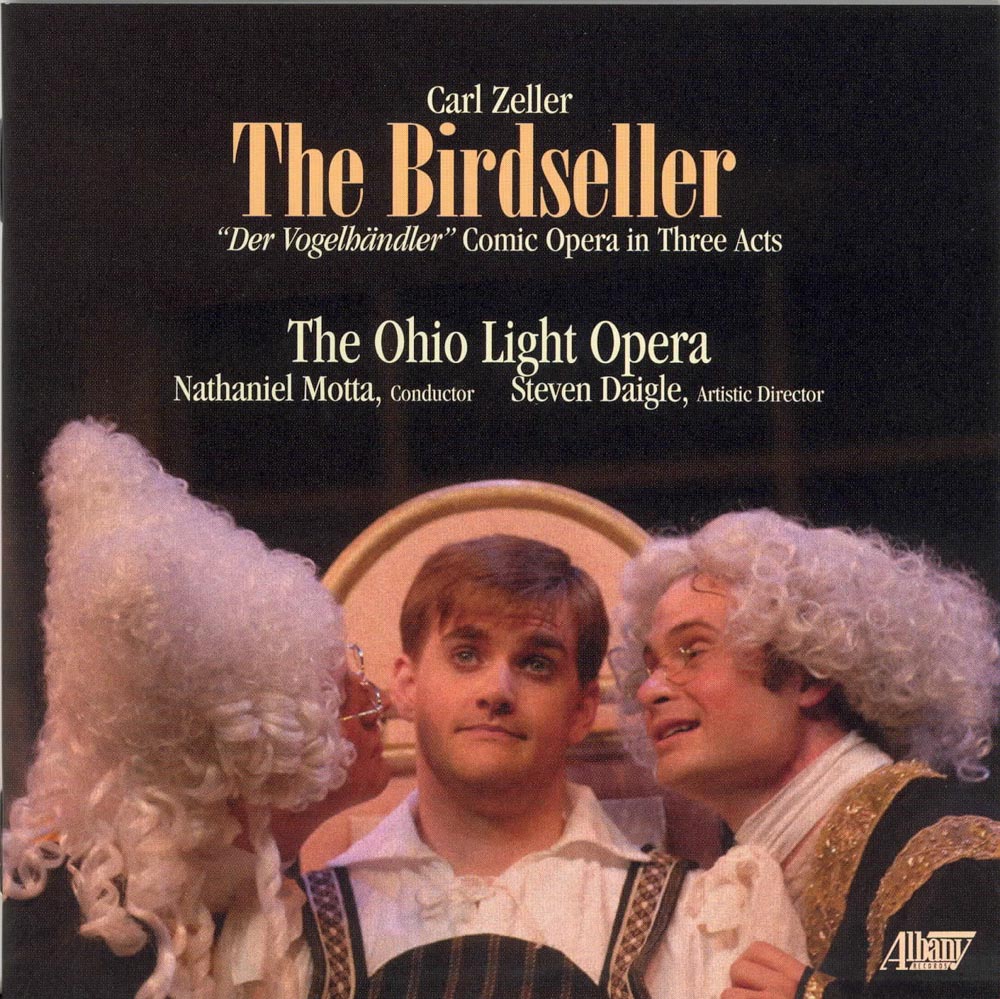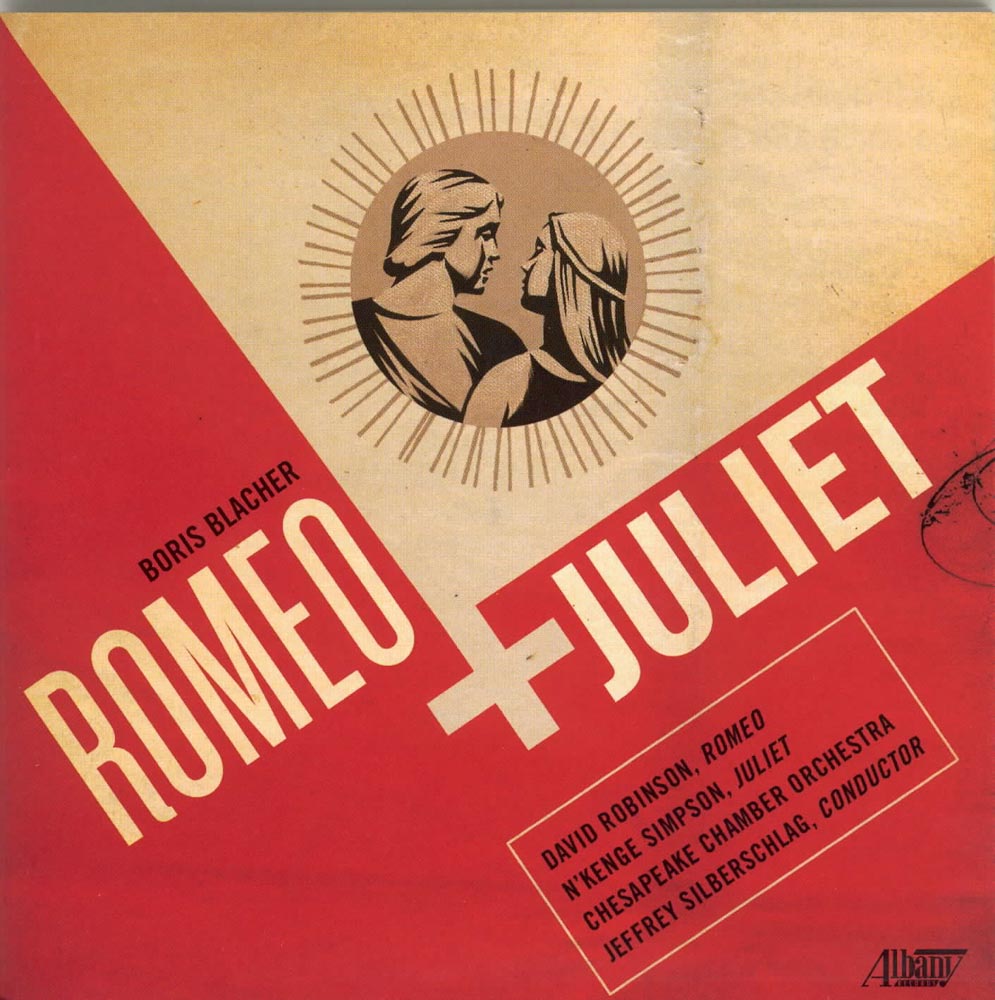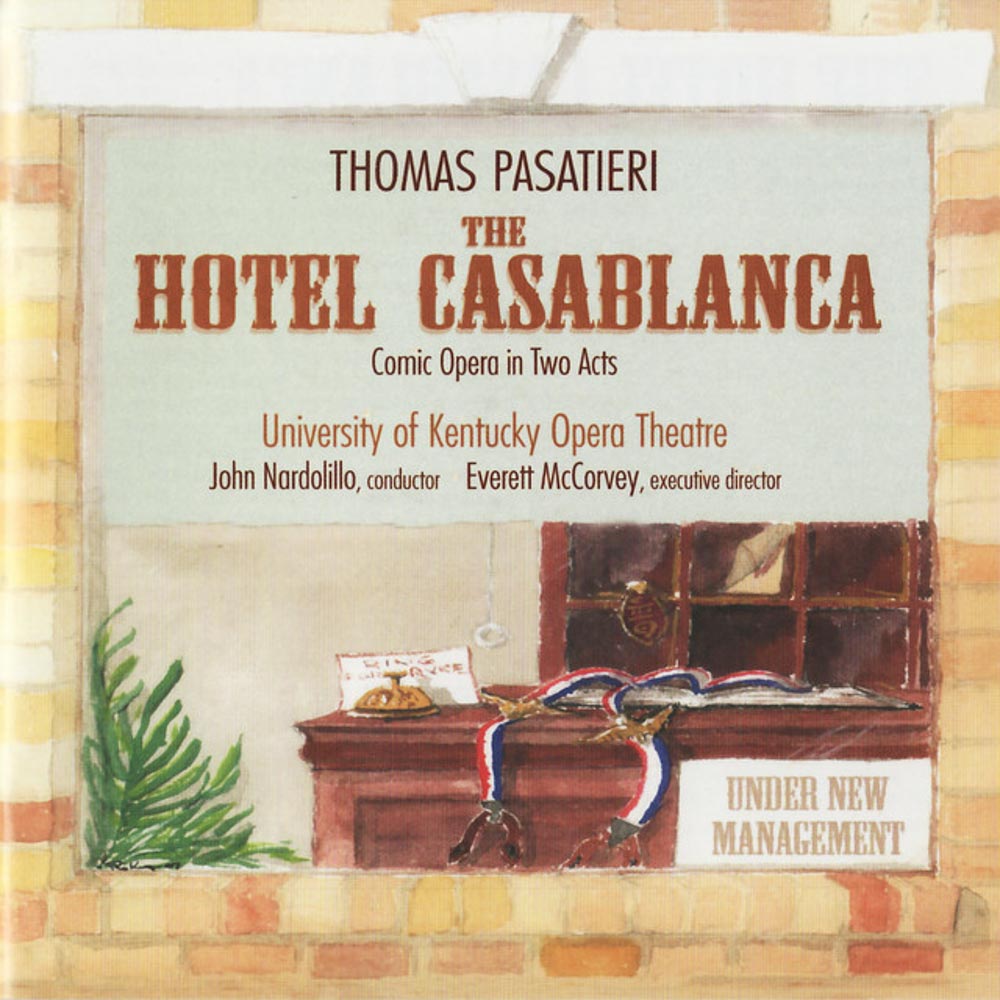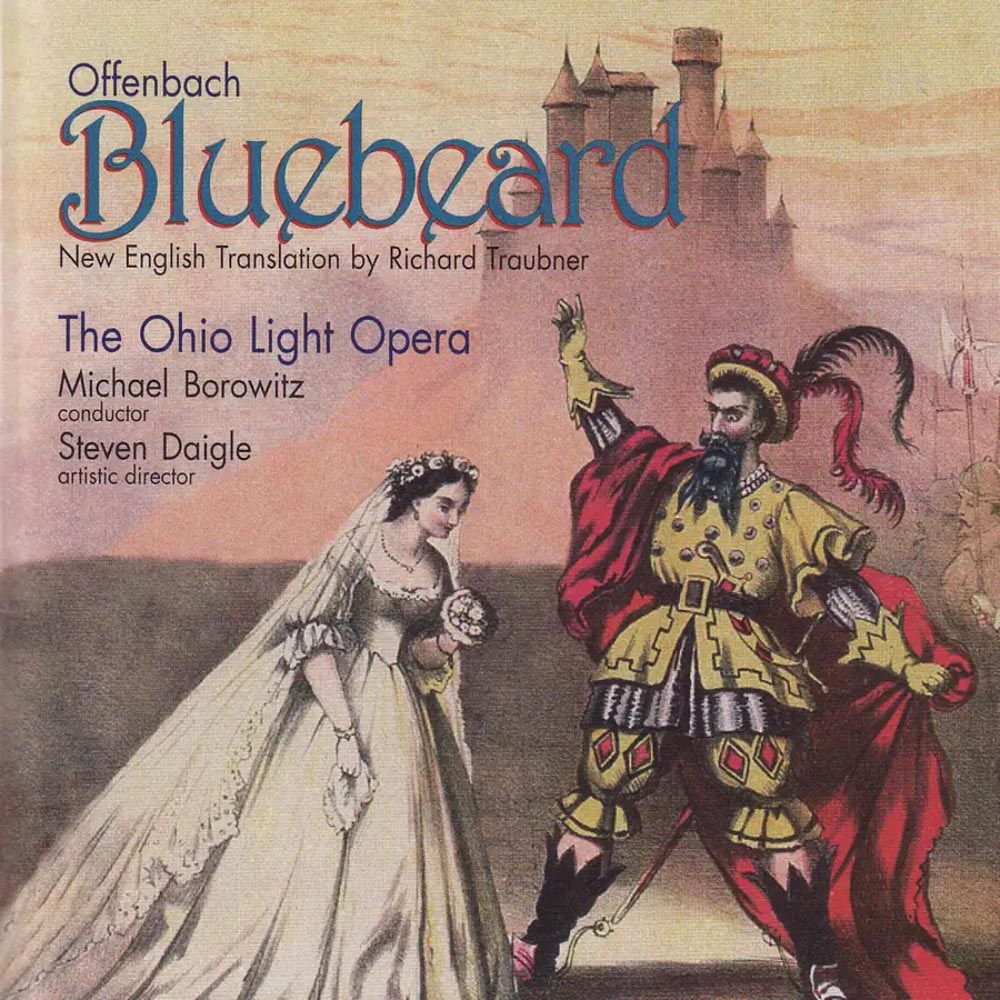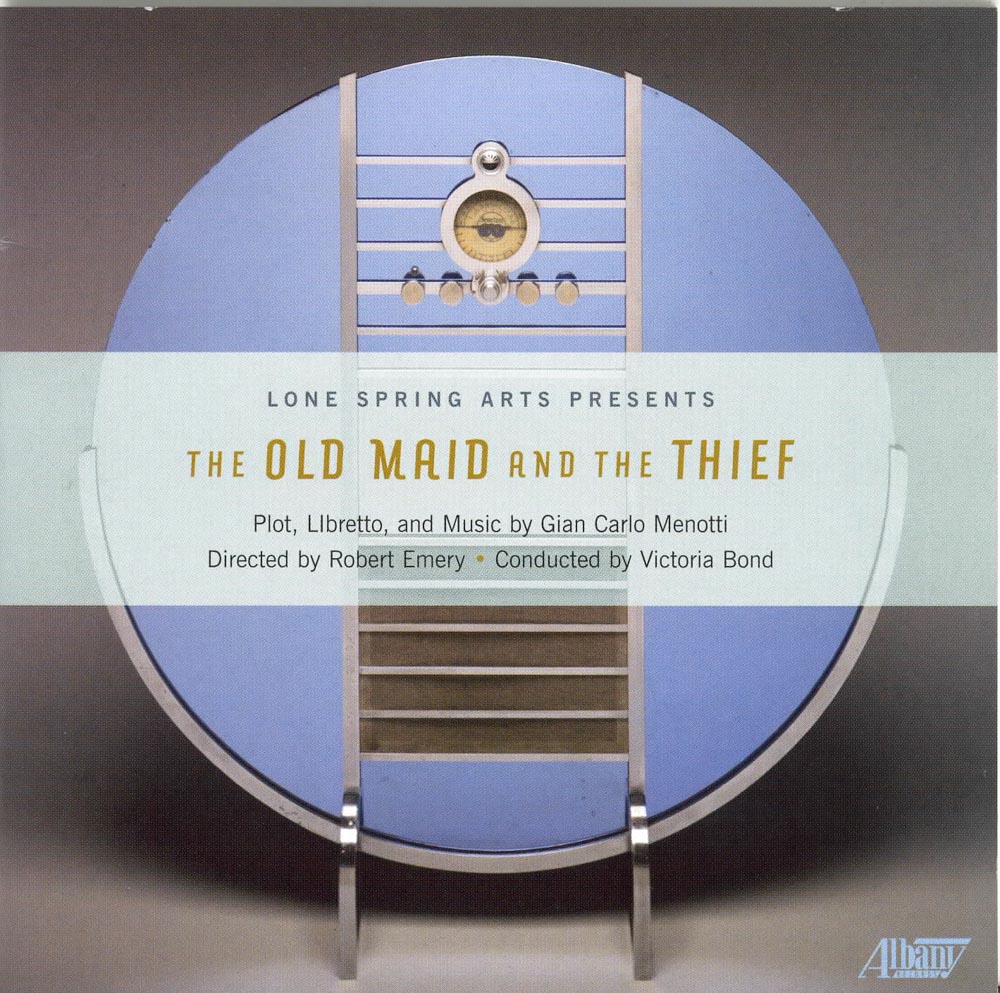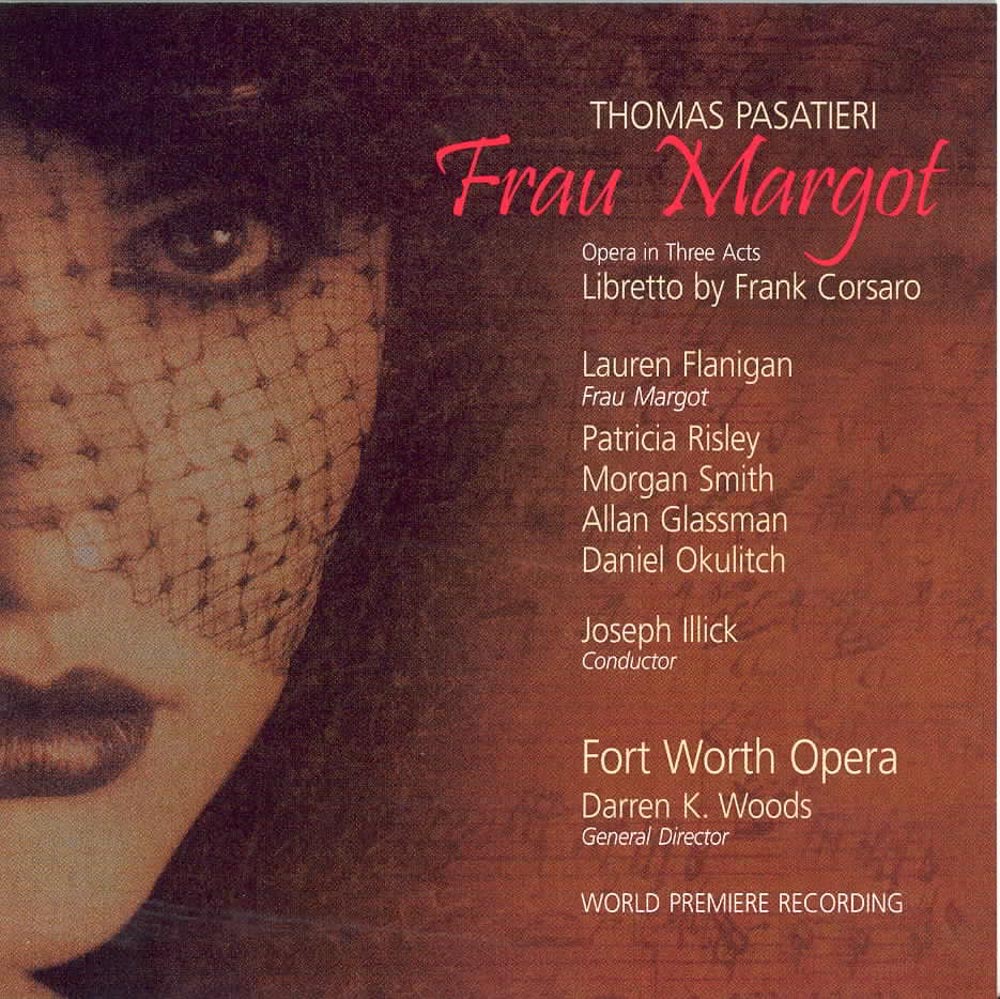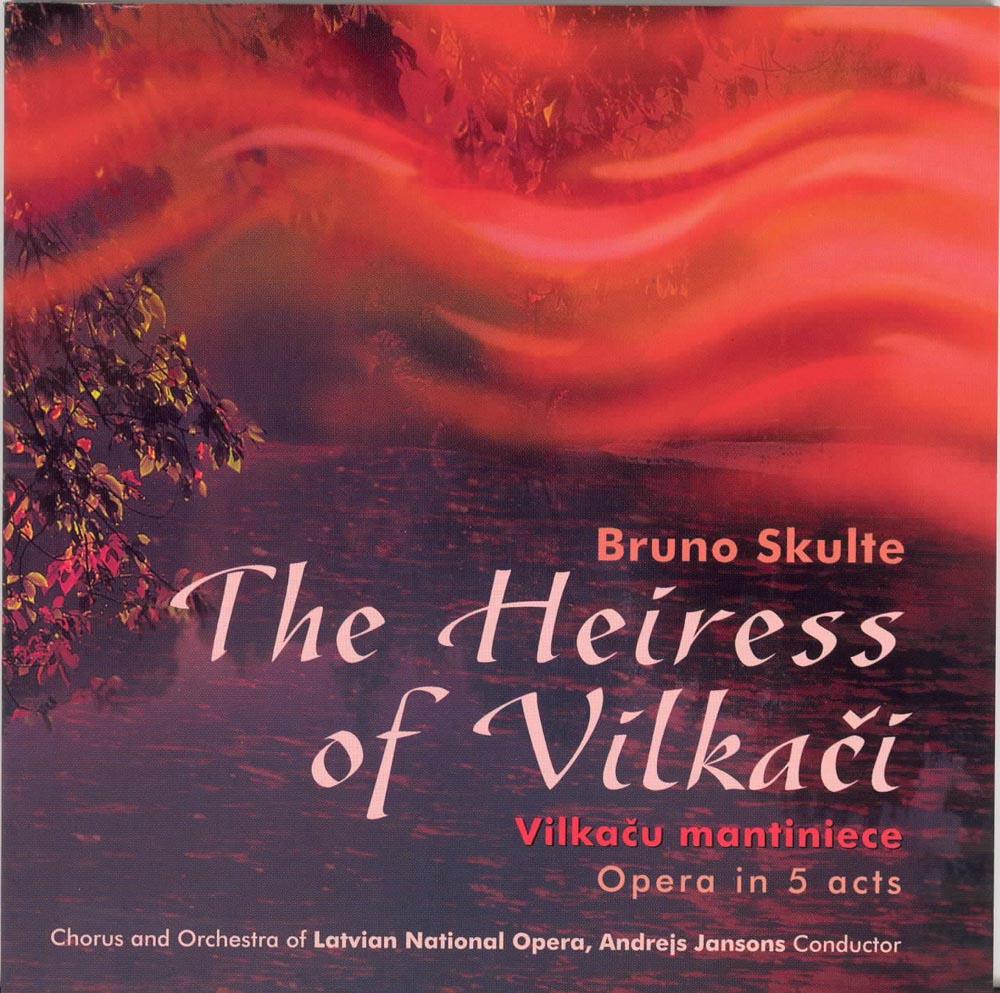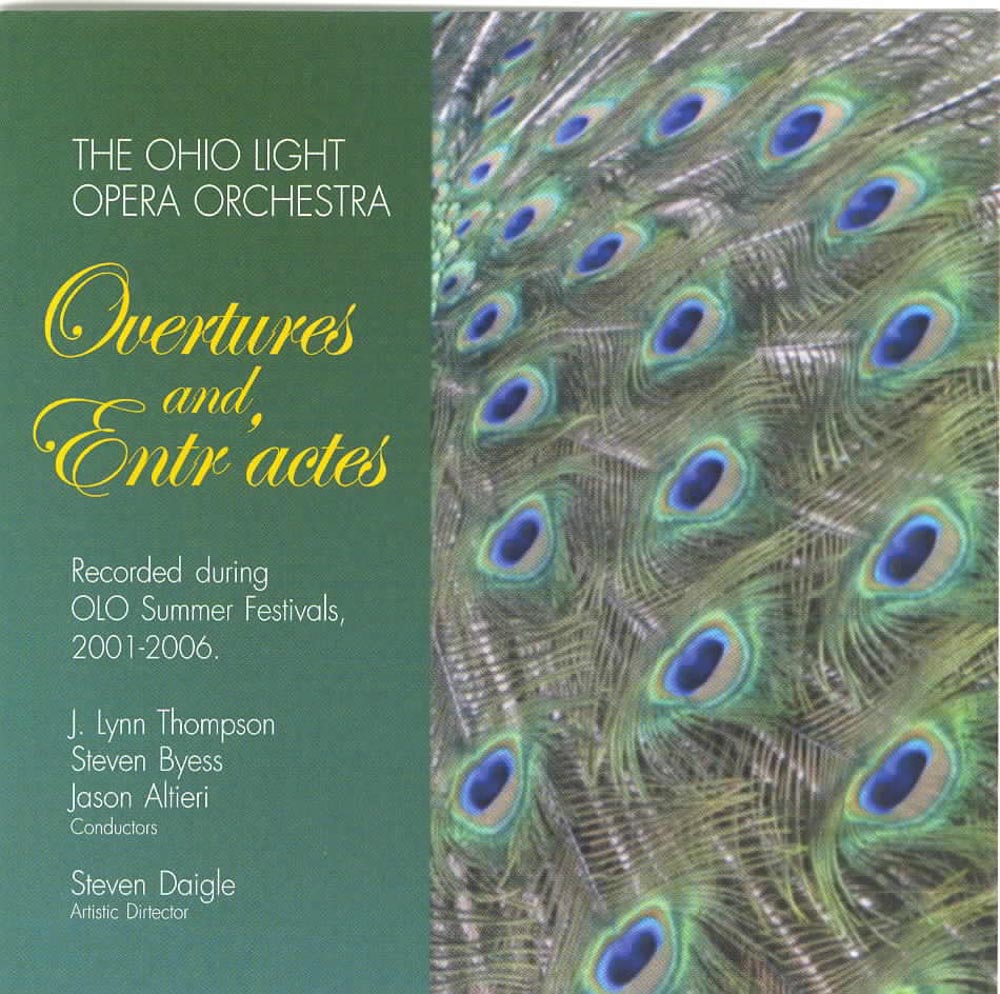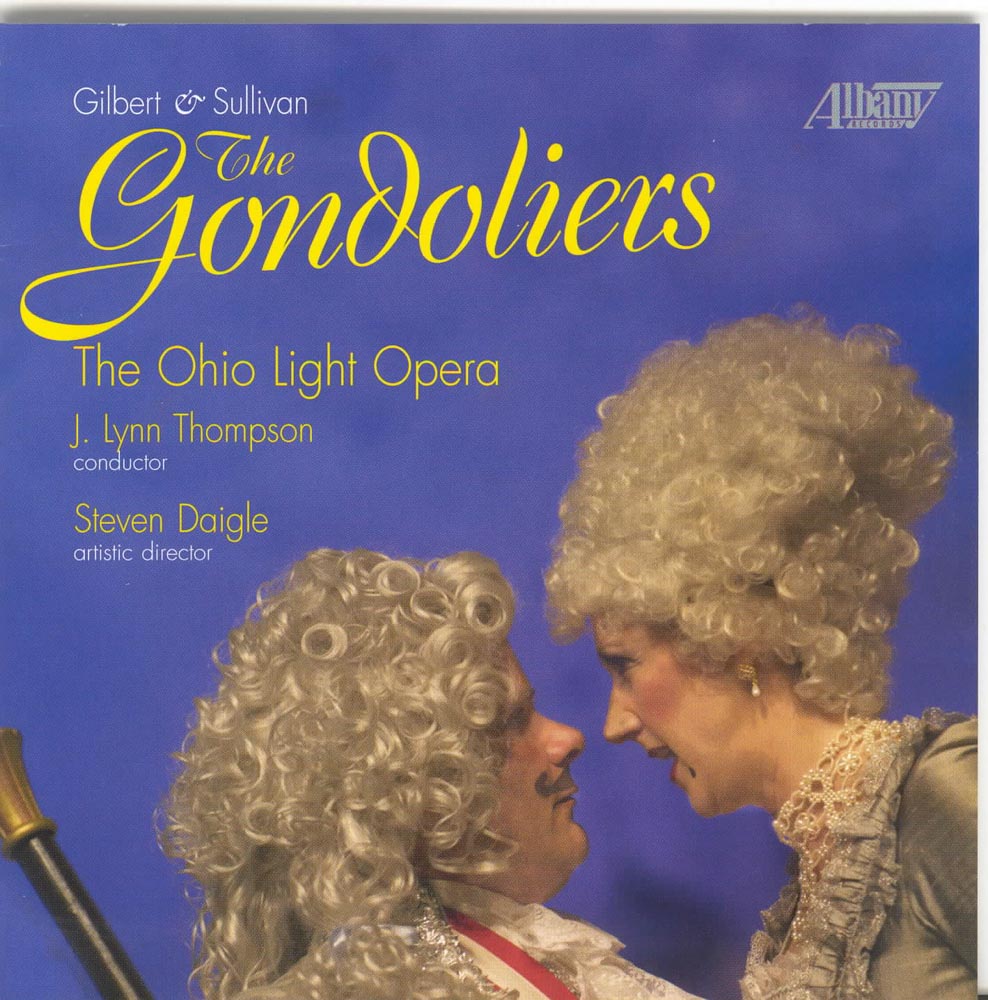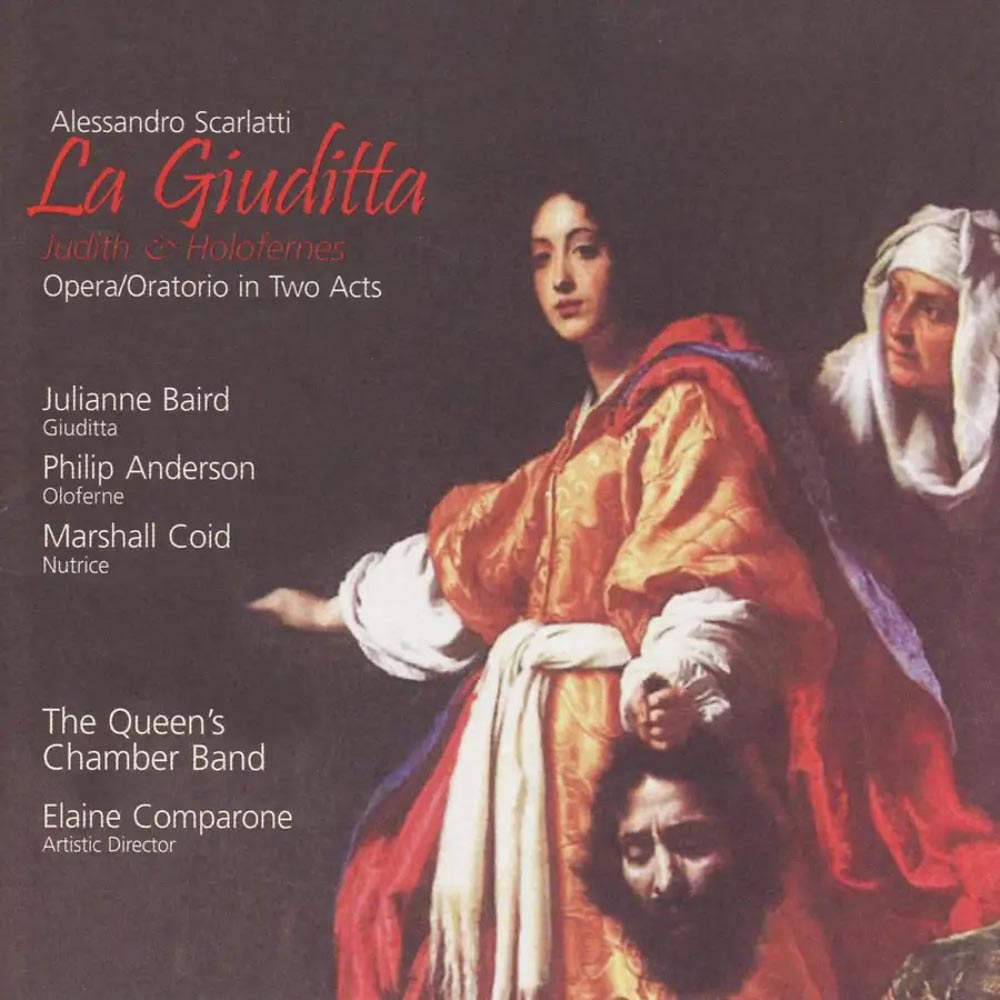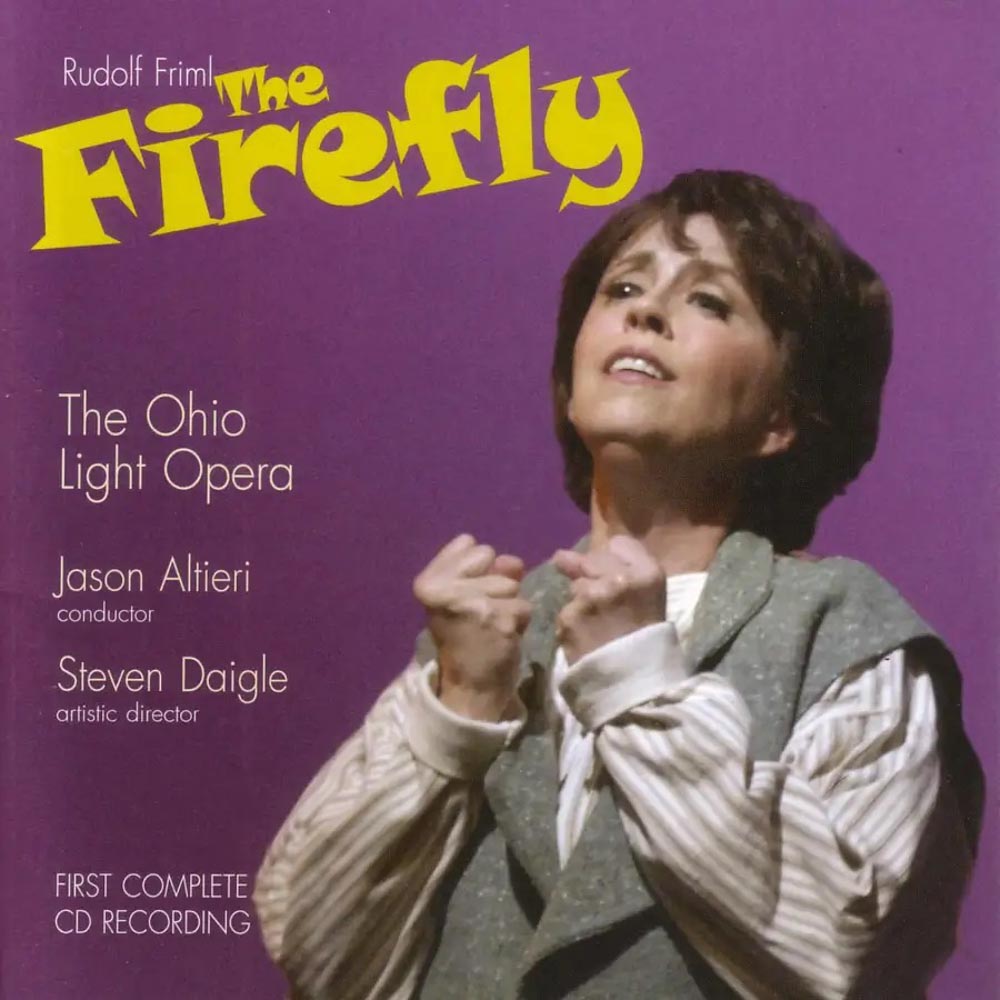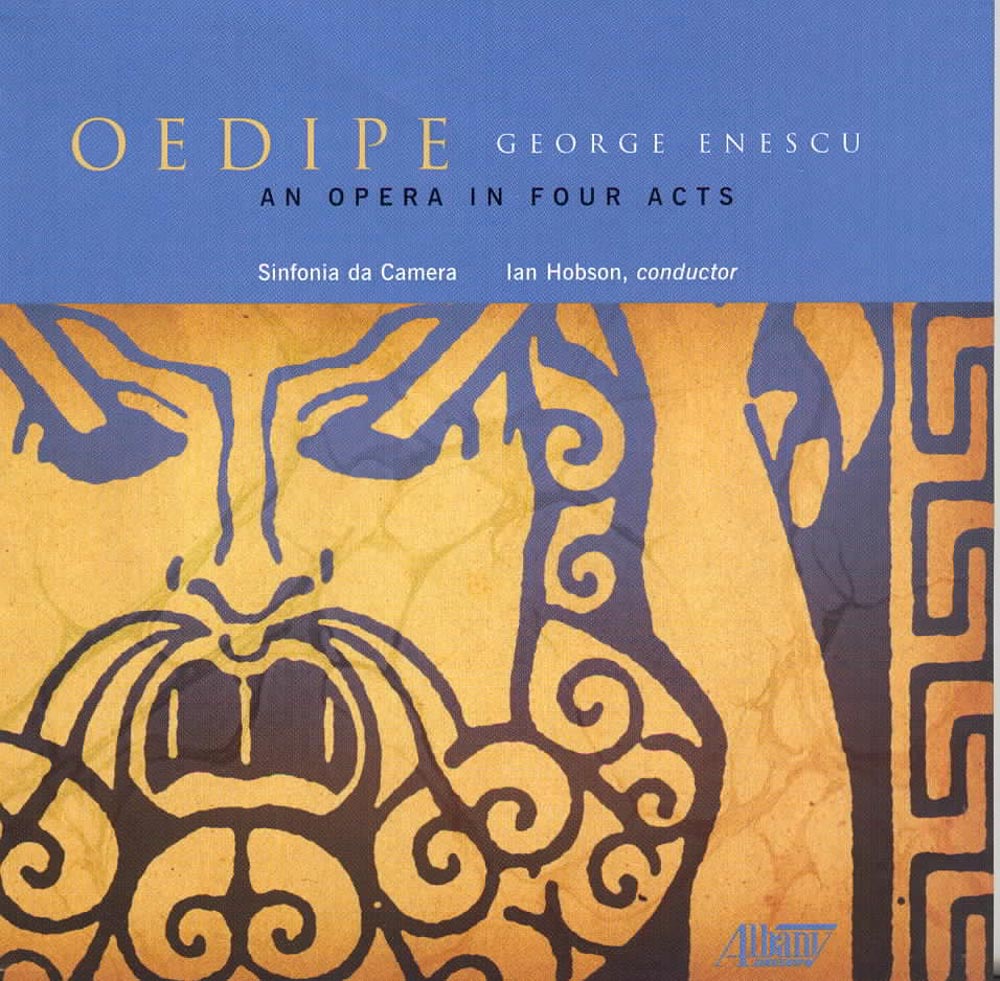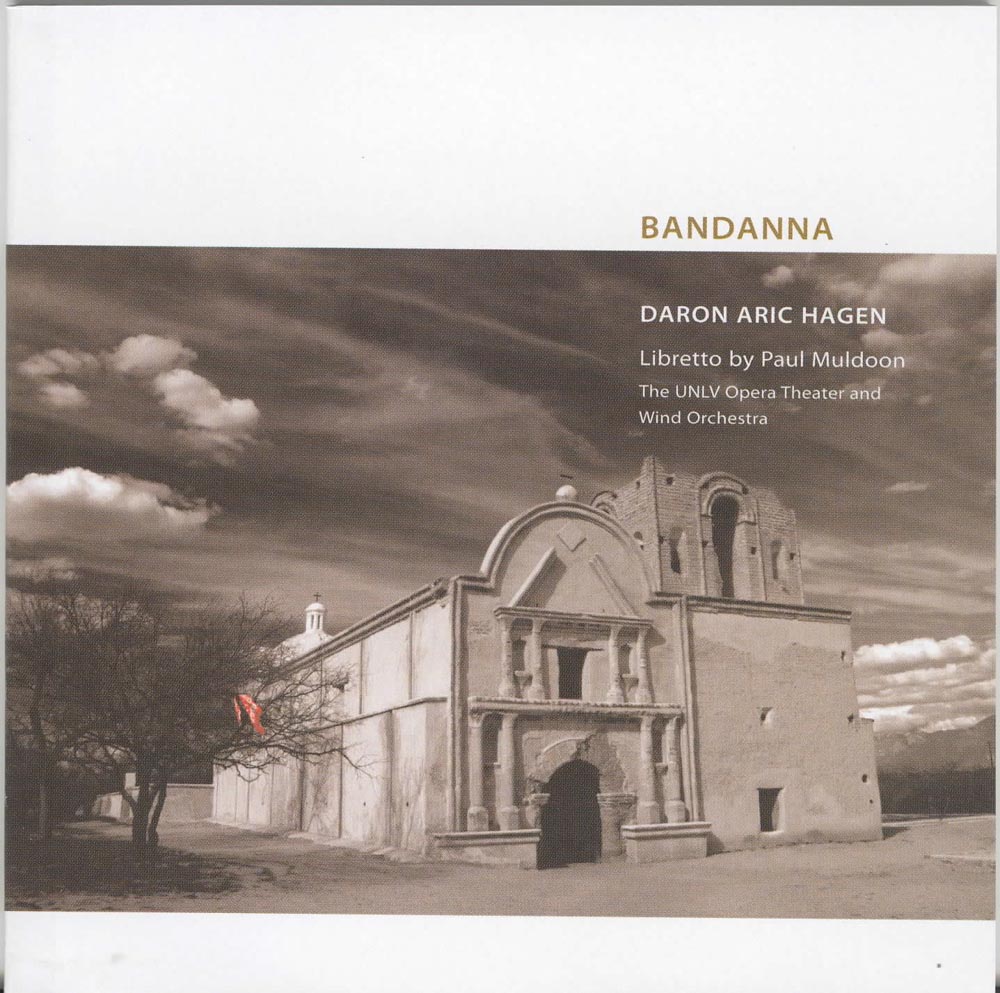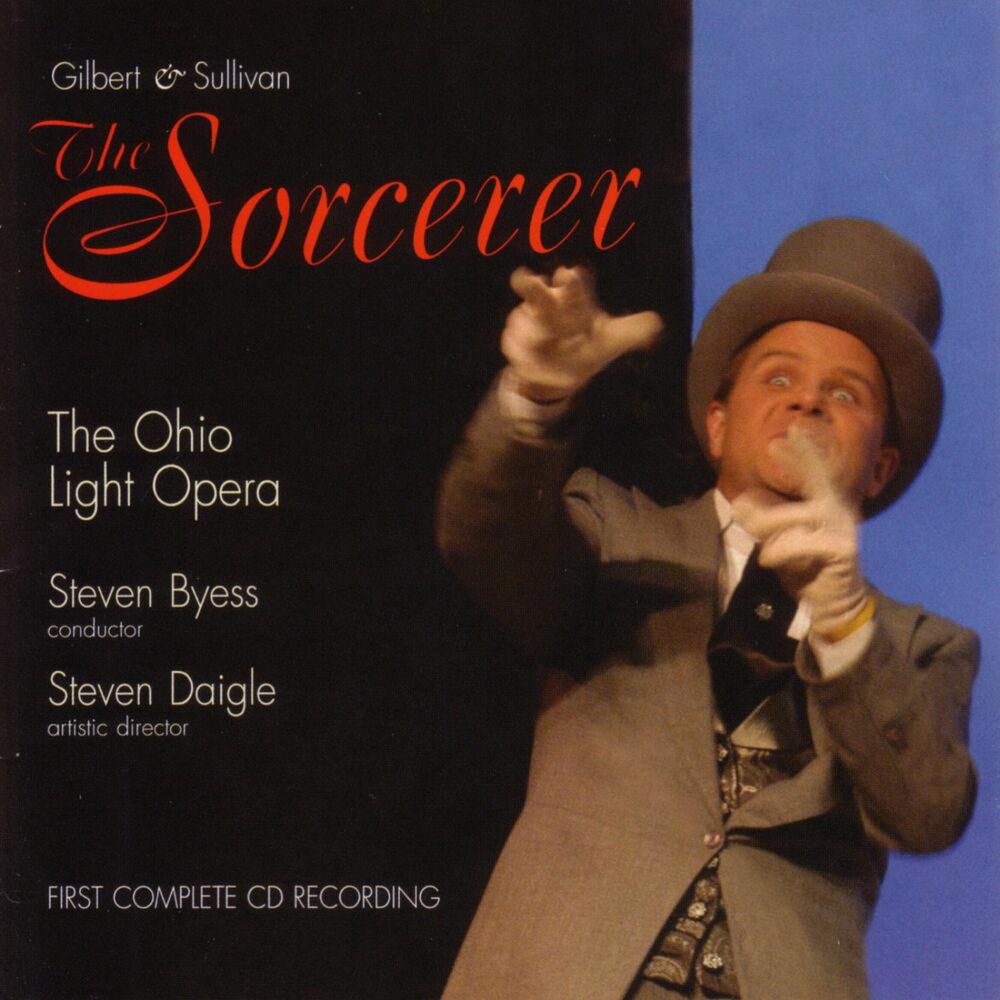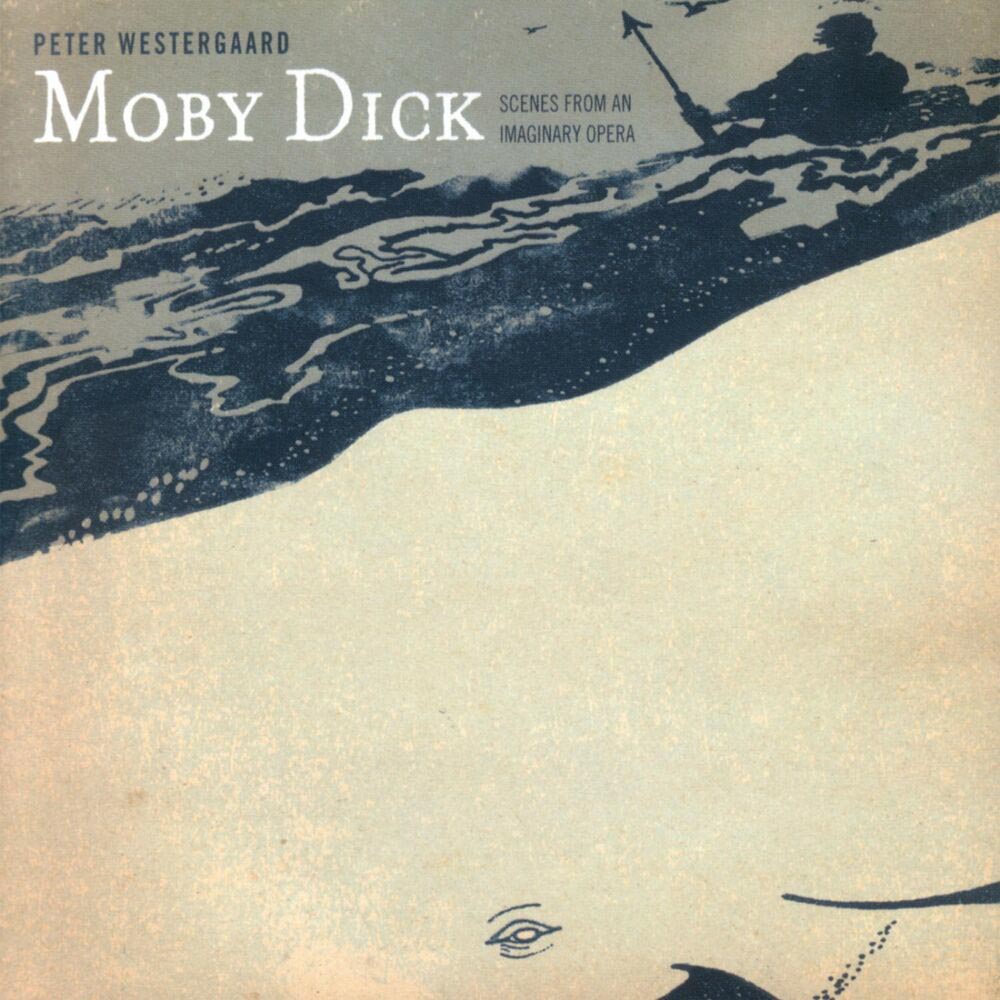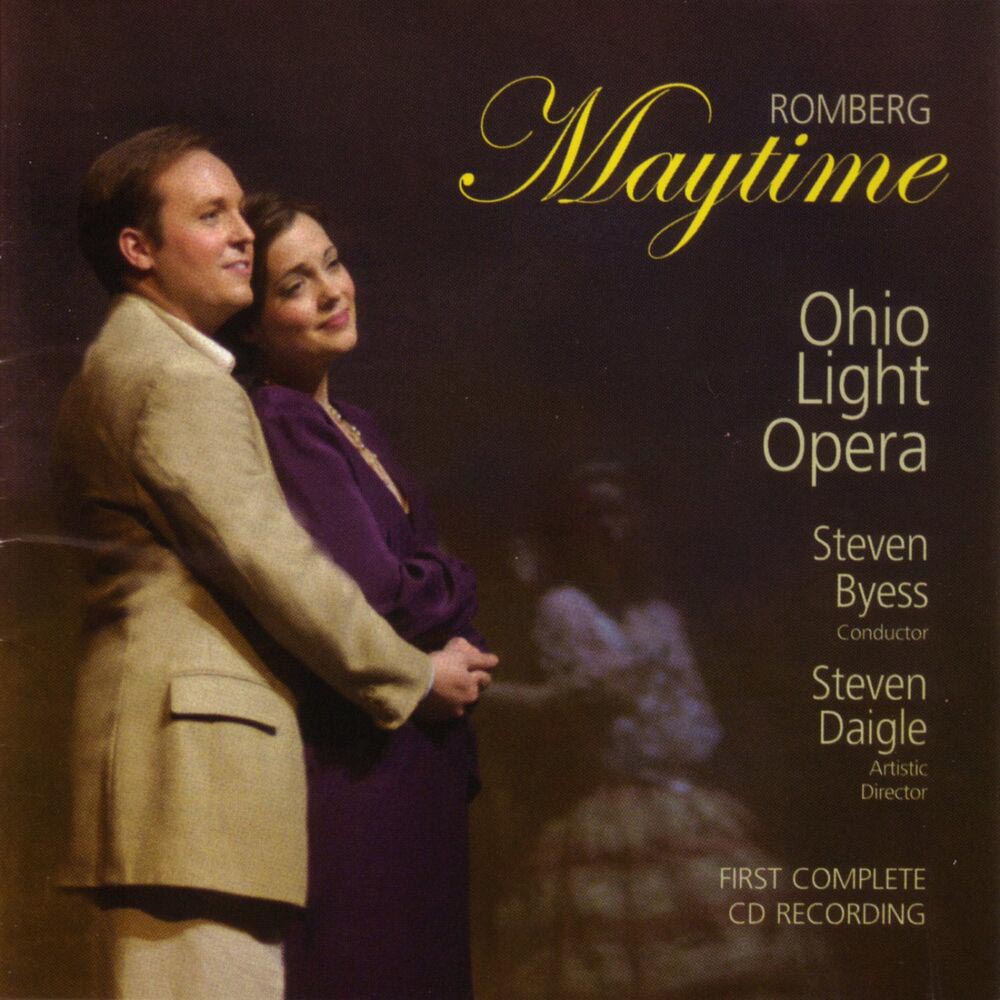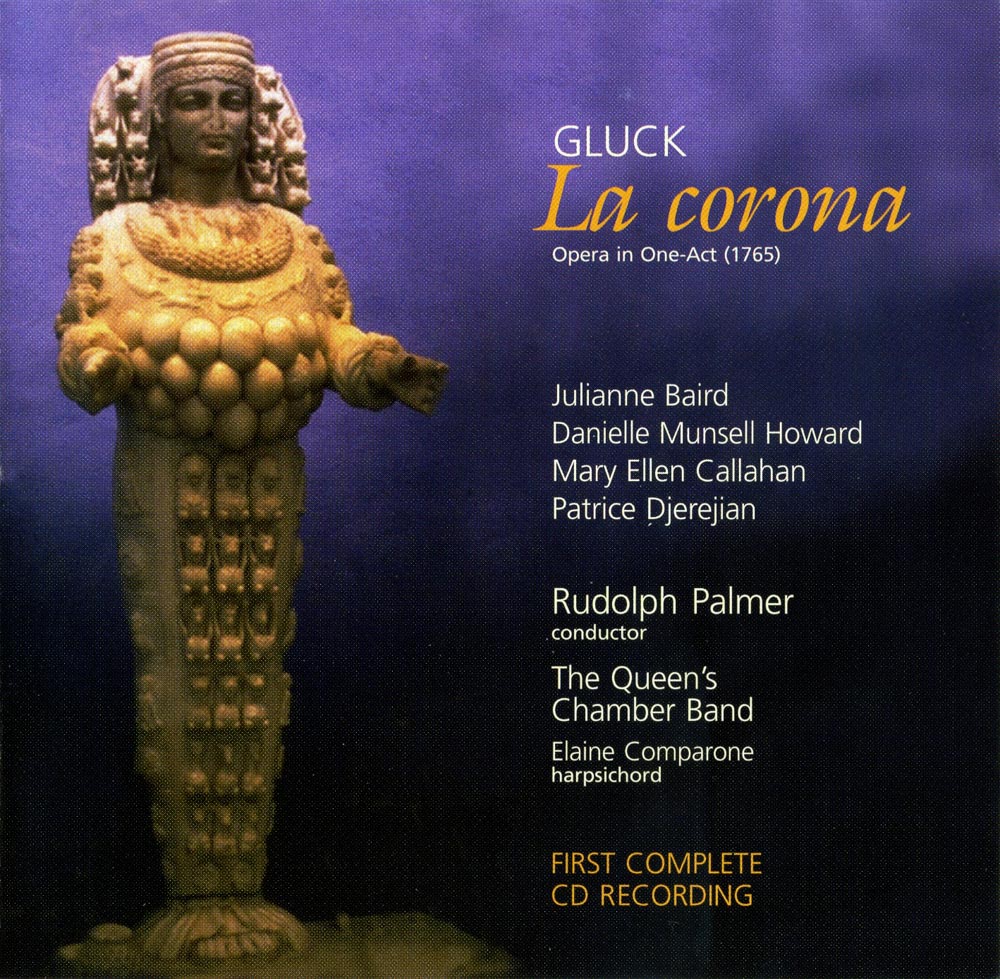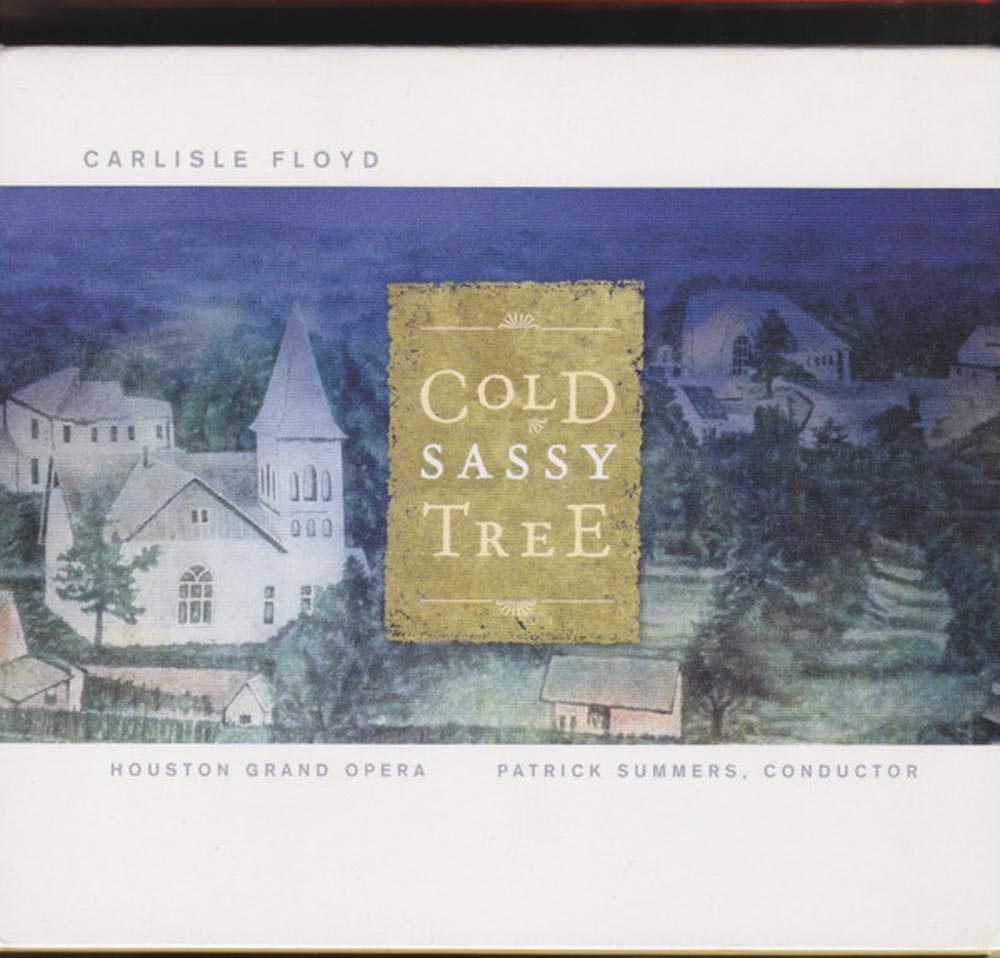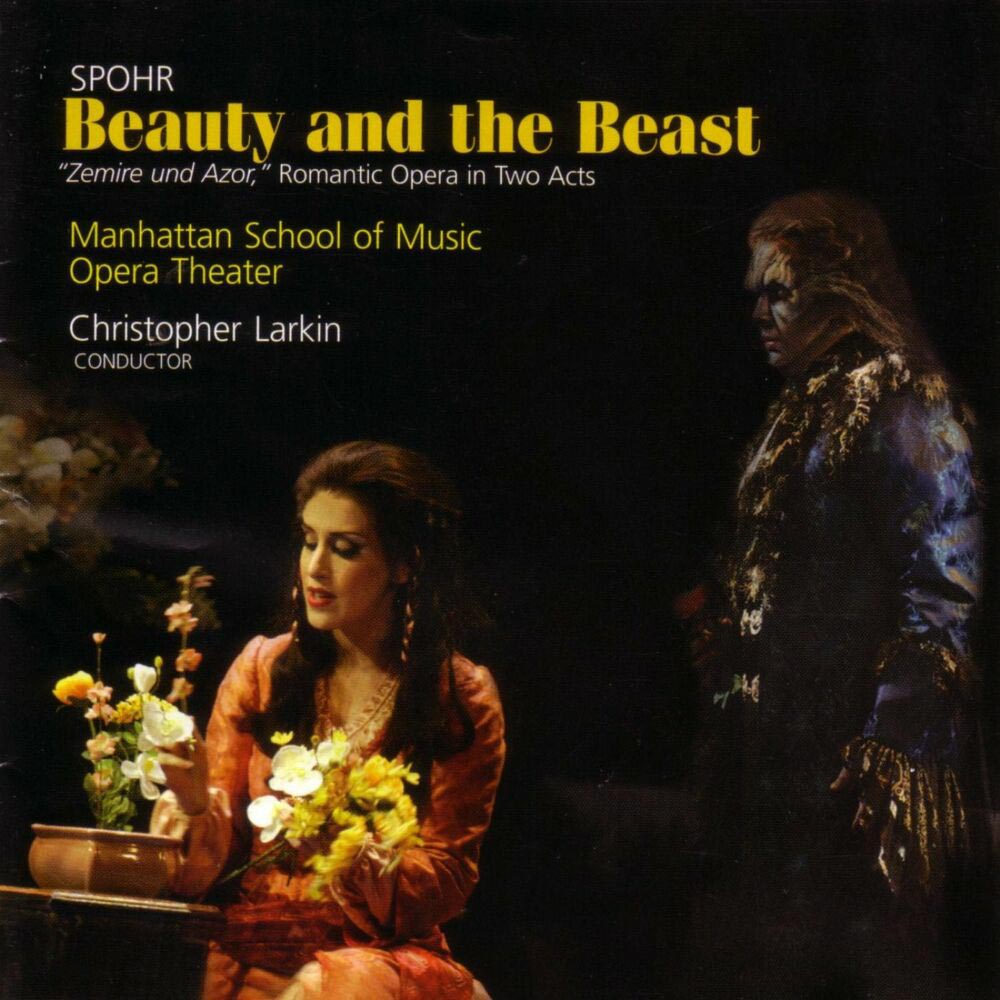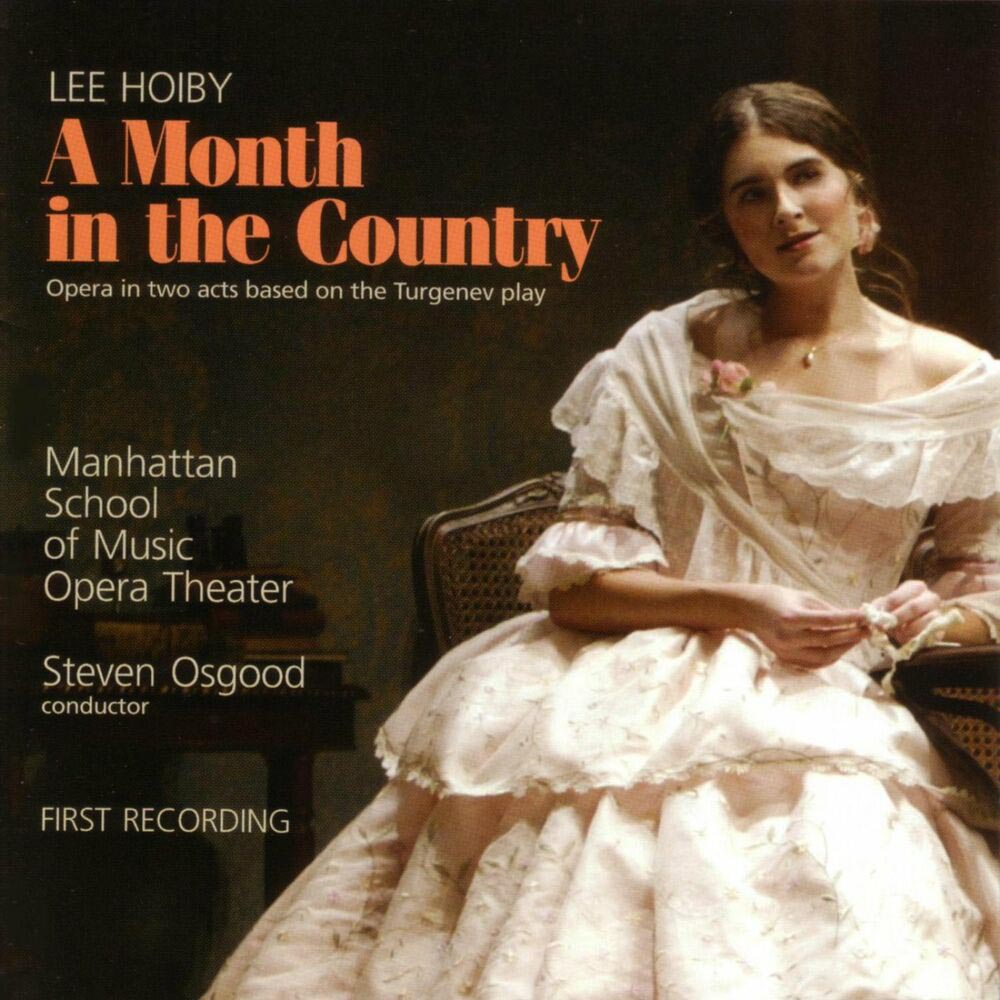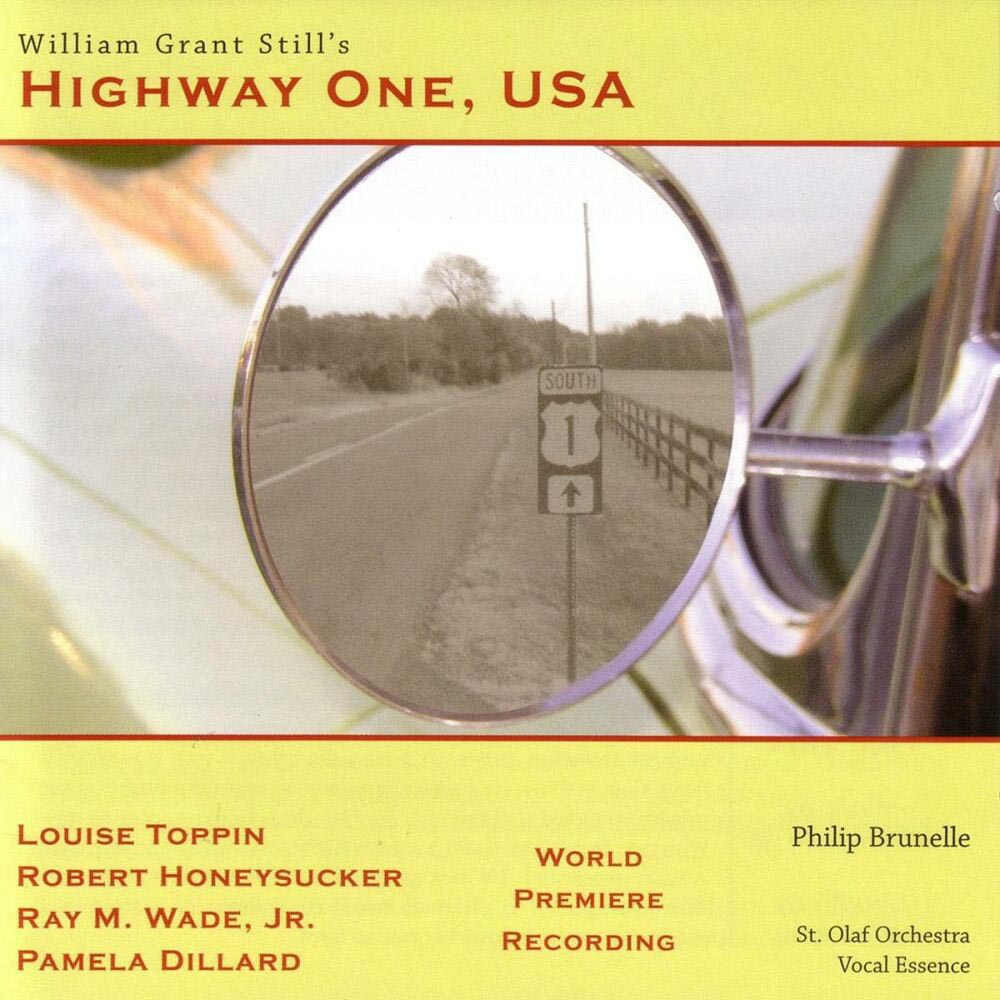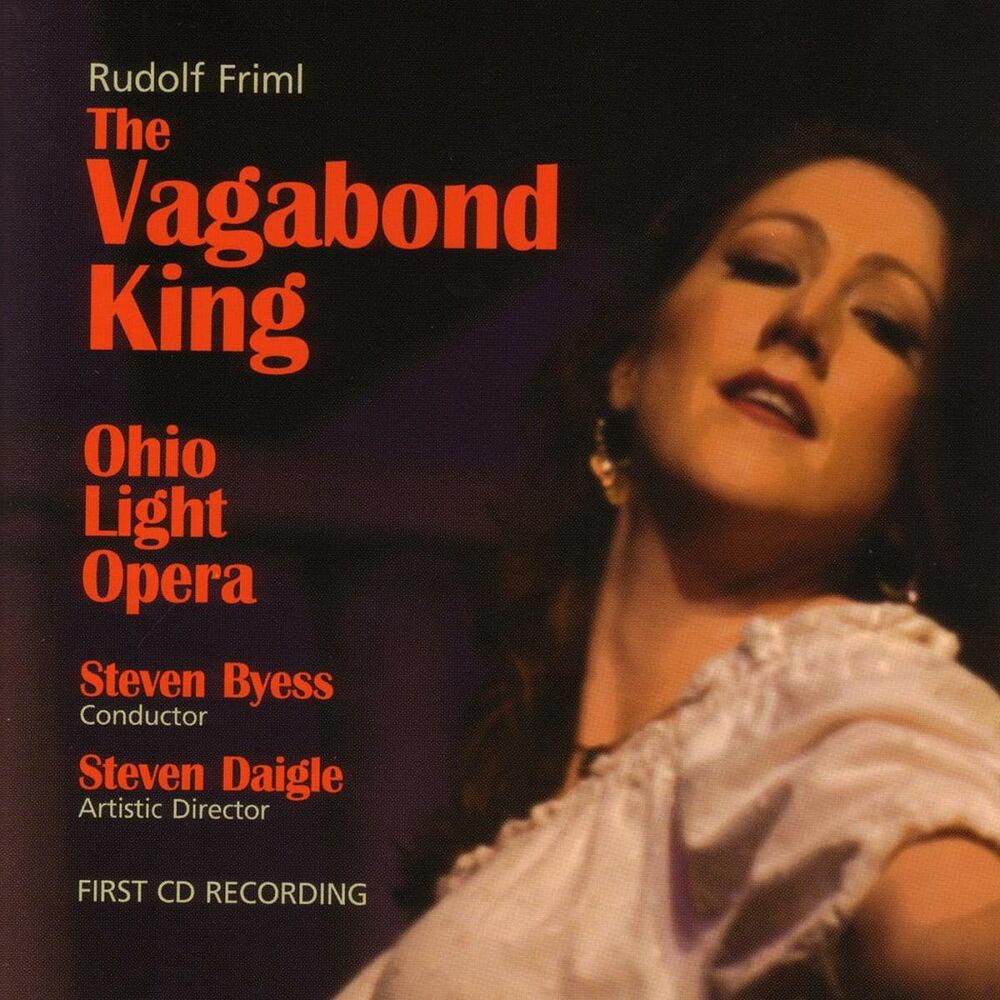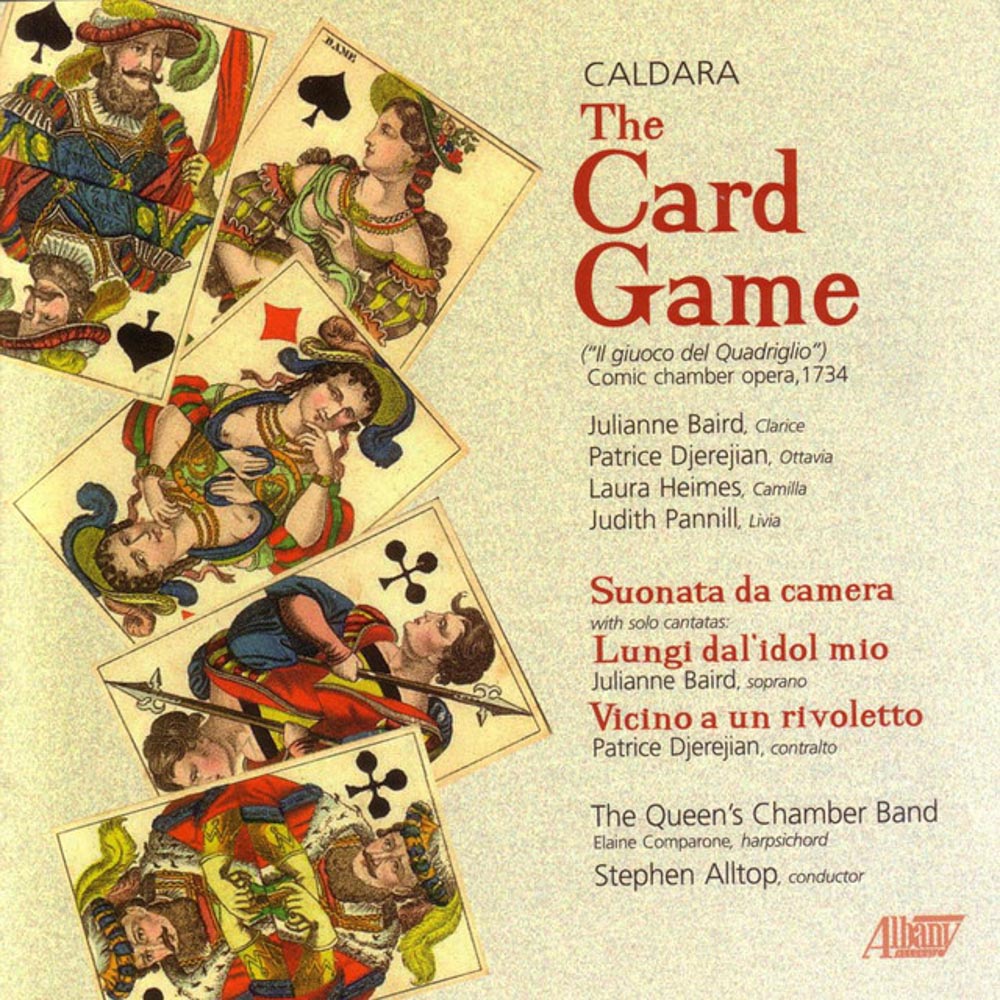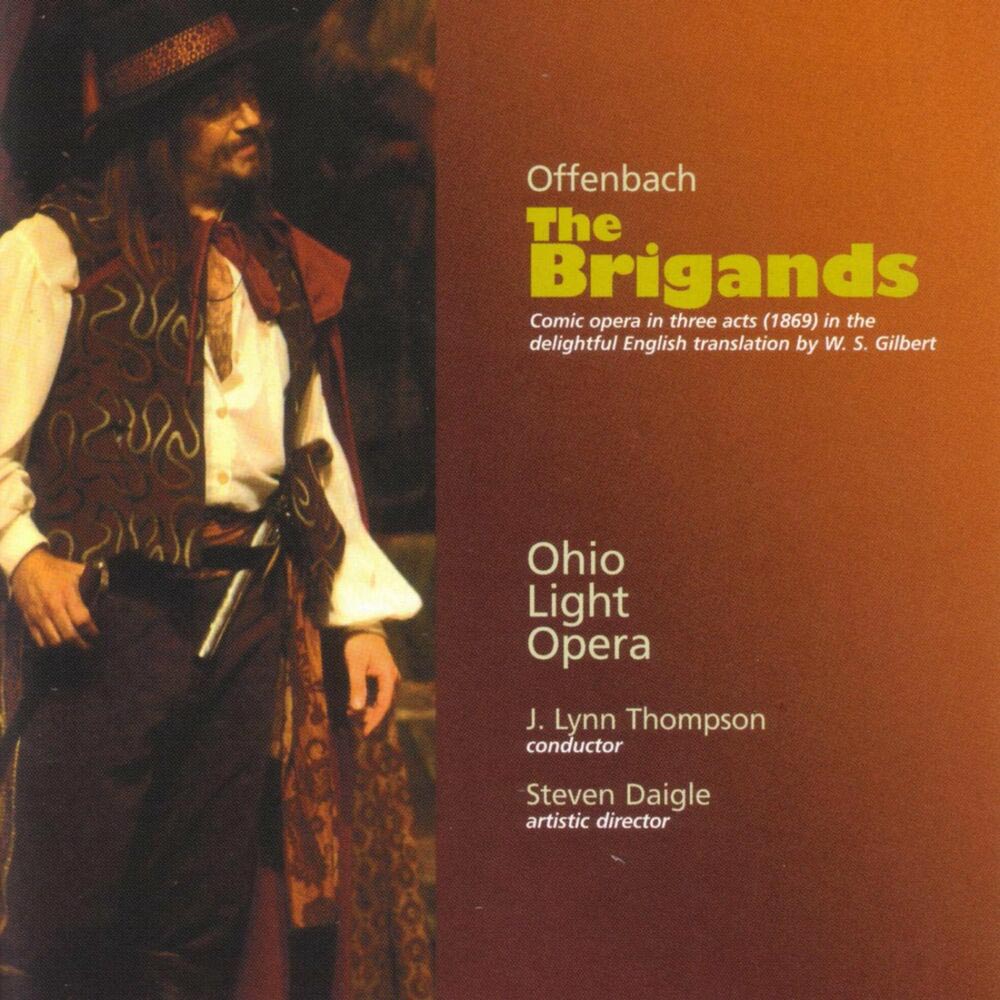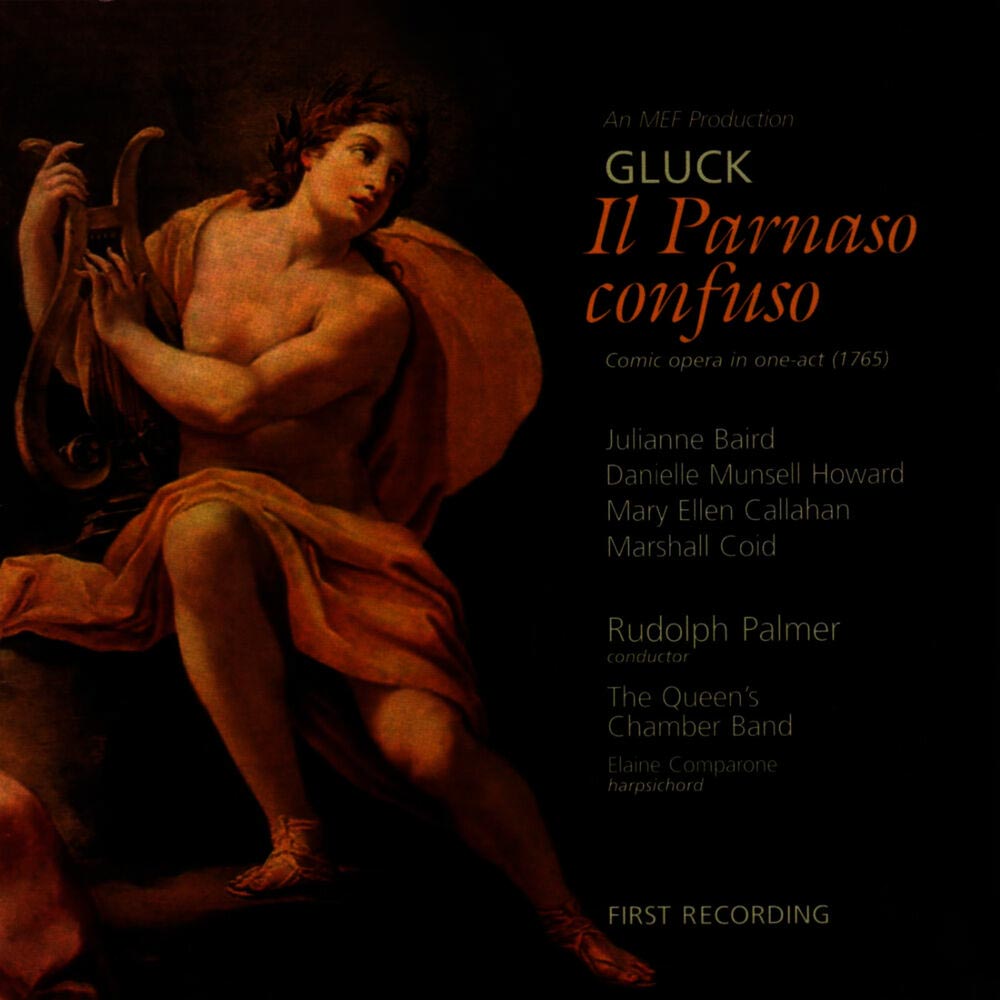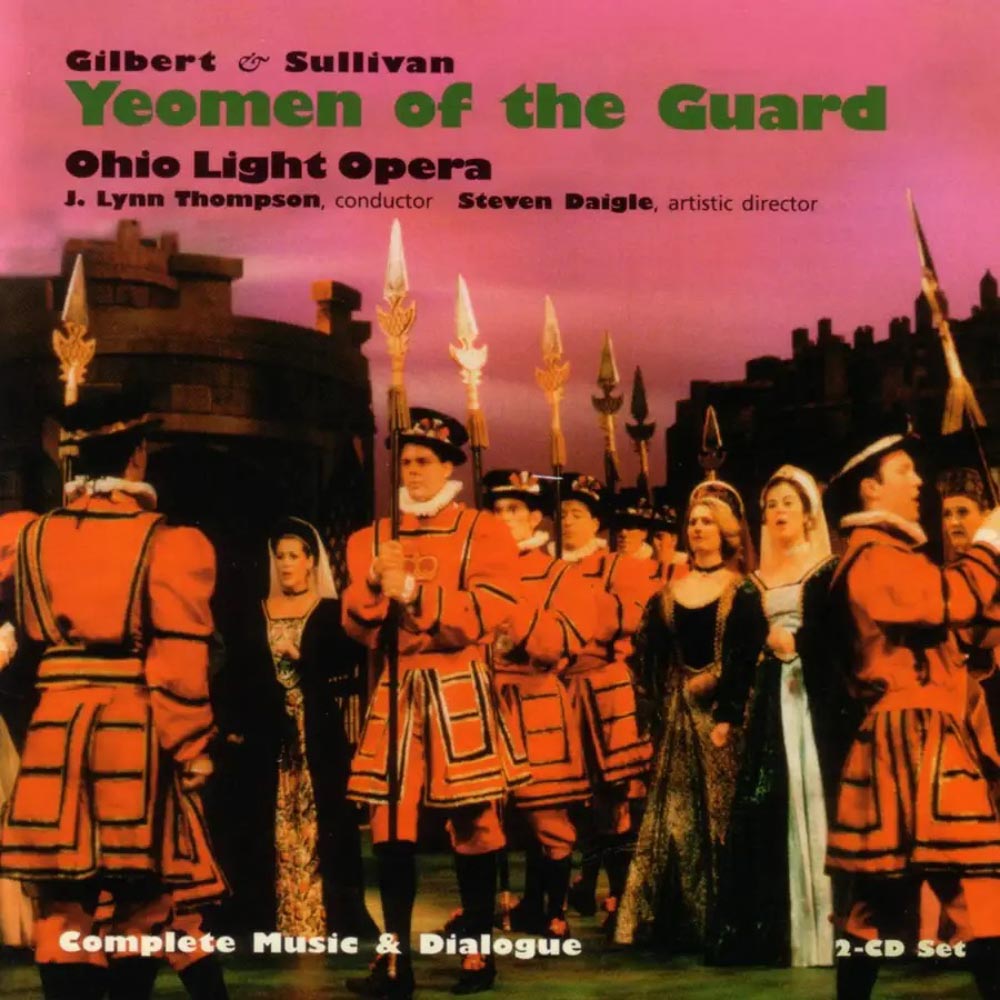Catalog #: TROY1012-13
Release Date: March 1, 2008OperaCarl Zeller, after service in the Vienna Court Chapel Choir, studied both composition and law and earned his doctorate in law from Graz University in 1869. He spent most of life in government service, writing music in his spare time. Although Zeller composed several works for the musical theatre, his reputation rests mainly on The Birdseller, which had its premiere in 1891. It has a familiar boy-meets-girl plot, set in that never-never land of operetta where mistaken identities are as common as pine trees and nightingales sing on cue. The Birdseller has one of the most captivating scores ever written. Its best-known melody is "Roses in Tyrol," the magnificent song and ensemble that climaxes Act I. One of the most popular productions of the Ohio Light Opera in the 1990s, this 2007 revival will certainly delight listeners long familiar with the score as well as those who are discovering it for the first time!
Catalog #: TROY1008
Release Date: March 1, 2008OperaBorn in China, son of a Baltic businessman employed by the Tsar, Boris Blacher was a true iconoclast, who traveled to exotic locales and studied architecture and mathematics but who, during the 1920's, took up music, writing works redolent of American jazz, which would get him into trouble after the rise of the Nazis. Yes, Blacher was another composer of "degenerate" music who did eventually write a genuine "hit" Ð the Orchestral Variations on a Theme of Paganini, a much-recorded piece. In recent years, more of his output has been released on CD, revealing a fascinating, original musical voice. This unique adaptation of Shakespeare's Rome and Juliet modifies the work in striking ways, omitting some characters, telescoping the action, even resorting to having different characters perform their lines simultaneously, creating an "overlapping dialogue" effect. Musically, the ensemble writing often bears a striking resemblance to Stravinsky's "L'Histoire du Soldat," perhaps a tribute from one master to another.
Catalog #: TROY1005
Release Date: February 1, 2008OperaAmerica's premiere opera composer here presents his first full-length comic opera, based on the classic farce "A Flea in Her Ear" by Feydeau. But here, the composer, working from his own libretto, has set the work on a ranch in Texas in the 1940s. The original source's hilarious story of supposed infidelities and the characters' outlandish attempts at getting even without finding out the truth of the matter translates wonderfully to the new setting and, indeed, at the first Lexington performances both critics and audiences were delighted by the new work. This represents the latest in an ongoing project with Albany and Pasatieri to record his major stage works (the most recent being the acclaimed "Frau Margot") and we're certain you'll share in the high spirits and fun that the Kentucky audiences had!
Catalog #: TROY0993-94
Release Date: December 1, 2007OperaFollowing the success of Orpheus in the Underworld, none other than Rossini dubbed Offenbach "the Mozart of the Champs-Elysees." After another international triumph, La Belle Helene, 1866 saw the premiere of Bluebeard. Despite being based on a grisly legend, Offenbach produced a ribald comedy tinged with the dark, gothic passions later found in The Tales of Hoffmann. Granted, the buffoonery is mixed with some real terror but all comes out well in the end! This recording marks the Ohio Light Opera's first performance of this work since 1987, in a very welcome revival featuring a witty English translation by Richard Traubner and all the high spirits and enthusiasm you expect from this marvelous company.
Catalog #: TROY0990
Release Date: December 1, 2007OperaEven for those of a "certain age" (i.e., baby-boomers) who never followed classical music, there is the indelible memory of "Amahl and the Night Visitors," Menotti's warm, wonderful Christmas opera, one of the first commissioned for television's early days. Some dozen years earlier, the composer, only 27, had been commissioned by the same company for the very first opera for radio, "The Old Maid and the Thief." Menotti began writing songs at an early age and studied at the Curtis Institute where he began a lifelong friendship with Samuel Barber, won a Pulitzer Prize for his first full-length opera "The Consul," and oversaw the famed Spoleto Festival, beginning in 1958. Menotti's delicate, tuneful music was almost a modern counterpart to the music of Rossini, full of high spirits, color and equal amounts of drama. This first recording of "The Old Maid and The Thief" in nearly 40 years is a wonderful memorial for the composer who died earlier this year.
Catalog #: TROY0965-66
Release Date: September 1, 2007OperaHow irresistible: a brand-new opera about the death of a fictional composer and his incomplete opera, his mysterious widow and her encounter with a musician who wants to finish it. Is murder involved? And it's suggested by a real life encounter between Leonard Bernstein and Alban Berg's widow! All of this awaits you in Frau Margot by America's most renowned opera composer, Thomas Pasatieri.
Catalog #: TROY0944-45
Release Date: August 1, 2007OperaAlong with his brother, the symphonist Adolfs Skulte (1909-2000), Bruno Skulte represented a bridge between the Romantic era and the blooming of modern Latvian music. After arriving in the U.S. in 1949 he devoted his energies to Latvian music festivals and choir directing. This nationalistic opera was one of his crowning achievements, and we are proud to present this first recording.
Catalog #: TROY0952
Release Date: July 1, 2007OperaThe complete recordings of these works on Albany with the Ohio Light Opera have been a delight to all and we're happy to present this CD featuring their outstanding orchestra performing the wonderful melodies from these classic operettas.
Catalog #: TROY0915-16
Release Date: March 1, 2007OperaThe Gondoliers, the sunniest of all the Savoy operas, was preceded by dissension and followed by the bitterest of quarrels between its collaborators. After Yeoman of the Guard (1888), Gilbert and Sullivan exchanged peevish letters, each accusing the other of swamping his efforts. D'Oyly Carte attempted to make peace between the two, and they began their new collaboration, in Gilbert's words, as "master and master -- and not as master and servant." (One wonders, in the latter, supposedly ideal, arrangement, just who was which!) During the premiere of The Gondoliers at the Savoy in London, on December 7, 1889, the demand for encores almost doubled the length of Act I. Critics praised not only the score and libretto, but also the lavish sets and costumes. This live performance is yet another feather in the cap of the Ohio Light Opera, which has been dedicated to producing and promoting the best of the traditional operetta repertoire for more than 25 years. This CD set, like so many others in the Ohio Light Opera/Albany series, will give the operetta aficionado a taste of what makes this company unique.
Catalog #: TROY0904-05
Release Date: January 1, 2007OperaThis biblical story, with its historical references to specific cities, generals and kings, is accepted as canon by Roman Catholic theologians, although it doesn't appear in either Hebrew or Protestant scriptures. The Book of Judith is set in the time of the mighty Assyrian ruler Nebuchadnezzar, King of Nineveh. Seeking to expand his empire, the king sends armies, led by General Holofernes (Oloferne), to subdue neighboring kingdoms, all of whom surrender under his powerful forces. The only ones who refuse to capitulate are the Israelites, who cordon off their mountain passes and gather provisions to resist a siege. Instead of a massacre, Holofernes discovers and commandeers their water sources. Faced with drought, the elders of Israel prepare to surrender. Their leader, Prince Ozias, suggests a five-day wait, during which interval Israel's prayers for help may be heard by God. It is at this point that Scarlatti's oratorio takes up the story, depicting the entrance of the pious Judith (Giuditta) who will distract Holofernes until she is able to slay him and make her escape, displaying his severed head, causing the enemy to retreat, sparing the Israelites. Scarlatti's score is in the Italianate style of the period, and the work is largely continuo-driven, with string ritornelli concluding most of the arias. This stellar performance, with the renowned Julianne Baird in the role of Judith/Giuditta, brings this remarkable story to blazing life.
Catalog #: TROY0891-92
Release Date: November 1, 2006OperaThe Firefly was the first of Friml's Broadway successes, a list that also includes High Jinks (1913), Rose Marie (1924), and The Three Musketeers (1928). Otto Harbach's libretto for The Firefly was originally intended to have music by Victor Herbert as a star vehicle for soprano Emma Trentini, but the two had an artistic falling-out, so impresario Arthur Hammerstein turned to the young Rudolf Friml, who responded with a bright and melodious score that included Giannina mia, Kiss Me, and Sympathy. At the December 2, 1912 premiere, the New York Times noted that encores were demanded for nearly every number and extolled Trentini as a "live wire...who as the Firefly proved herself a whole pyrotechnical show." Friml peaked in the 1920s and did not adapt to the changing musical theatre modes. But he remained a vigorous personality through most of the last century and died in 1972. For more than 25 years, the Ohio Light Opera has been dedicated to producing, promoting and preserving the best of the traditional operetta repertoire. These shows offer the operetta fan a little of everything: both well-known and lesser-known Gilbert and Sullivan, operettas by French, Viennese and American composers, and revivals such as The Firefly. This set includes Friml's complete musical score and most of the spoken dialogue from the 2006 production and will hopefully give the operetta aficionado a good taste of what makes this company unique.
Catalog #: TROY0861-62
Release Date: August 1, 2006OperaToday George Enescu's name means one thing to most listeners: The Romanian Rhapsodies, those stalwarts of symphonic "pops" albums since the days of 78's. But Enescu was much more: in addition to a large chamber and orchestral output that included three large Symphonies, he was considered one of the foremost violinists of the 20th century and a conductor important enough to be considered as Toscanini's successor at the New York Philharmonic. Important Romanian musicians such as Clara Haskil and Dinu Lipatti benefited from his encouragement. As evidence of his skills, we present this new performance of Enescu's Oedipe. Influenced by a 1909 performance of Sophocles' Oedipus Tyrannos, he worked on the opera sporadically from 1910 until the final orchestration of 1931. Edmond Fleg's libretto concentrates Sophocles' Oedipus the King and Oedipus at Colonos in the last two acts of the opera and precedes them with two more acts. Enescu considered himself a Wagnerian who also admired the music of Brahms. Along with a prevailing chromaticism one can also find here similarities with the music of his French teachers and colleagues. Oedipe was premiered in March 1936 at the Grand Opera in Paris to the great acclaim of most critics. Here is a remarkable opera that will shed a fascinating light on a composer too few people really know in depth.
Catalog #: TROY0849-50
Release Date: June 1, 2006OperaCommissioned by the College Band Director’s National Association, Bandanna received its world premiere staged production in March, 1999 by the University of Texas Opera Theater, Michael Haithcock, conductor. The European concert premiere was presented in Warrington, England by the North Cheshire Concert Band and Manchester Chamber Choir, Mark Heron, conductor in April 2006.
Catalog #: TROY0832
Release Date: April 1, 2006OperaThomas Mann's extraordinary novella Mario and the Magician was written while he was vacationing on the Baltic seacoast, hard at work on his massive novel Joseph and His Brothers. An unpleasant incident that occurred down on the beach inspired Mann to create an ominous allegory about the rise of fascism and the Nazi blight that was beginning to affect Germany at that time. American composer Francis Thorne's interest in Mario goes back to 1963, when he discussed with Mann's daughter, Elizabeth Borgese, the possibility of an opera. Permission was granted, and work began with librettist Chester Kallman, but delays forced inevitable changes. Years later, Thorne would work with J.D. McClatchy (librettist, incidentally, for Tobias Picker's Emmeline [TROY284/5]). The work was premiered March 12, 1994. Thorne himself is part of that great generation of American composers born in the 1920s (others being Donald Erb, Leonard Rosenman, and the late Meyer Kupferman and Jacob Druckman) who came to prominence in the late 1940's and early 1950s, writing strongly accented music often with prominent jazz influences. Thorne's first professional job was as a jazz pianist at New York's famed Hickory House, with Duke Ellington's recommendation. He later studied with David Diamond. His output includes concertos, symphonies, chamber music and songs both "classical" and pop. He was also principal founder of the American Composers Orchestra, and has served on the boards of CRI Records, The Virgil Thomson Foundation and the MacDowell Colony. Mario and the Magician is his only opera.
Catalog #: TROY0814-15
Release Date: December 1, 2005OperaEager to capitalize on the 1875 success of Trial By Jury, impresario Richard D'Oyly Carte organized the Comedy Opera Company, Ltd., and commissioned Gilbert and Sullivan to write a comic operetta. Drawing upon various sources, Gilbert fashioned a plot dealing with the effects of a love potion on an English village. Though Gilbert finished his libretto by April 1877, Sullivan, despondent over the death of his brother Fred, finished the score barely in time for the mid-November premiere at London's Opera Comique. The Sorcerer, satirizing both Victorian customs and theatrical devices, was a success and ran 175 performances; this was to lead to the next collaboration, H.M.S. Pinafore. Once again, Albany is proud to present another wonderfully sparkling performance by the renowned Ohio Light Opera Company, the first complete CD set incorporating Gilbert's hilarious spoken dialogue. Those who have come to know and love the acclaimed series by this group are in for an absolute treat!
Catalog #: TROY0806-07
Release Date: December 1, 2005OperaPeter Westergaard taught composition and theory at Princeton University from 1968 to 2001, and also directed the Princeton University Opera Theatre during this time. Moby Dick is his fifth opera, the others being Charivari (1953), Mr. And Mrs. Discobbolos (1964), The Tempest (1990), and Chicken Little (1997). As he writes about Moby Dick: "Melville's novel paints a vast canvas. But of the many stretches that might have made good scenes for an opera, I have chosen only those I deemed absolutely necessary to spinning the central yarn. Gone is Father Mapple's sermon, all that's left of Pip is his tambourine...there are a few brief glimpses of Queequeg, Tashtego and Daggoo." In terms of being imaginary, Mr. Westergaard recognizes the complexities of adapting the many elaborate scenes from the book into a viable stage presentation, especially the struggles of attacking the whale, etc. As he continues, "With a recording, of course, all these problems conveniently disappear as you, the listener, imagine from Ishmael's words and the music that surrounds them what Ishmael sees in his mind's eye as he tells us his tale." In essence, Mr. Westergaard has created the ideal opera for the recording medium.
Catalog #: TROY0794-95
Release Date: December 1, 2005OperaAlva Henderson contributes wonderful recollections of his youth collecting classical and opera recordings in the 1950's, leading to comparisons and contrasts of studio and live recordings of operas. These annotations more than explain how Mr. Henderson came to love modern opera and how his creative path was chosen. This fascinating new release presents his and librettist Dana Gioia's interpretation of the classic 1922 F. W. Murnau silent film Nosferatu, probably still the most haunting and certainly most expressionistic vampire story in motion picture history. Though Henderson entered San Francisco State College in the 1960's for drama studies, he changed to music and studied under Wayne Peterson and Robert Sheldon. While supporting himself as a member of the San Francisco Opera Chorus, he completed his first opera, Medea. The 1972 San Diego Production brought him national attention. In the years that followed came the operas The Last of the Mohicans, The Tempest, The Last Leaf, The Room Across the Hall and Achilles. Dana Oland of the Idaho Statesman wrote, "The opera...is a success and a stunning addition to the world of contemporary opera. Henderson composed rich, luscious melodies to meld with Gioia's delicious poetry, written in English...an opera than can make English a poetic, operatic language. Henderson deserves acclaim for his brilliant and sweeping score." Here is a modern opera that is romantic and passionate with beautiful vocal writing.
Catalog #: TROY0808-09
Release Date: October 1, 2005OperaThe composer of such Broadway hits as The Student Prince, New Moon and The Desert Song was born in Hungary, educated in Vienna and studied engineering. But his musical gifts were recognized, and he came to New York at age 22. In between menial odd-jobs, he made his presence known to the point where the Schubert brothers engaged him in 1914 to become their house composer, eventually producing 17 shows and hundreds of songs (many for Al Jolson) by 1917. That was the year that Maytime, based on a play by Walter Kollo, had its premiere. Romberg changed the locale from Europe to old New York, and the work was a great success and ran for nearly 500 performances. Though Maytime achieved great popularity as a 1937 Jeanette MacDonald/Nelson Eddy film, it only used two original Romberg numbers. Here is a chance to experience this tuneful, charming operetta of lost and found love in a sparkling performance, the kind we expect from the wonderfully talented Ohio Light Opera Company members.
Catalog #: TROY0791-92
Release Date: September 1, 2005OperaBy his mid-twenties Gluck was already writing operas, set to the libretti of revered Italian dramatist Pietro Metastasio. By 1750 he had settled in Vienna. The young composer was soon engaged at the Burgtheater in Vienna to tailor French operas and opera-comiques to Austrian taste (frequently inserting selections of his own music). The Hapsburg royal family, Empress Maria Theresa in particular, was very fond of the composer. Gluck had composed music for regal birthdays and namedays and participated in the celebrations for the second marriage of the eldest son Archduke Joseph in January 1765. For the wedding festivities Gluck had been commissioned to supply a short opera with Metastasio's libretto. Four of Maria Theresa's daughters were accomplished musicians and sang in that new work, Il Parnaso confuso (available on TROY655). This was such a success that another work was commissioned: La Corona. But due to the Emperor's sudden death, the work was not presented; Gluck never heard it, and it was not performed until our own time. The work, based on a Greek myth dealing with a dispute over who shot the fatal blow during a hunt for a wild boar terrorizing a kingdom, has a clarity and a directness which is both refreshing and new. Gluck's stated credo, "I believe that my greatest labor should be devoted to seeking a beautiful simplicity, to avoid making displays of difficulty at the expense of clearness" applies very well to this lovely score. Opera lovers will rejoice at this presentation, another in this wonderful series featuring Julianne Baird and her stellar companions. And, as a delightful bonus, two examples of Gluck's relatively small chamber output are included as the perfect encores.
Catalog #: TROY0758-59
Release Date: August 1, 2005OperaCold Sassy Tree, Carlisle Floyd's first crack at writing a comic opera, is taken from Olive Ann Burns' delightful exploration of youthful old age and set in an America affectionately drawn. As always, he has written his own libretto, drawing upon his own theatrical instincts that have been nourished simultaneously with his music. Like five of the six Floyd operas that preceded it, Cold Sassy Tree is about American attitudes, characters - and the joy of language. Like all the work that preceded it, the music is about expressive clarity, lyricism and the value of song. According to Daniel Webster, "Floyd writes popular opera. Not pandering opera, but theater pieces strapped tight with technical virtuosity, yet sounding innocent and natural..." Carlisle Floyd comments that "In dramatizing the book for the stage, there were two undergirding themes in particular from the novel that I wanted to deal with. First was the astonishing capacity human beings possess for change and growth, and the second was the healing and transforming power of love. When the book first appeared one reviewer aptly described Ms. Burns' novel as the story of an old man growing young and a young man growing up and the woman who, without intending to, becomes the catalyst for both. This general description holds true, I hope, for the opera as well." This recording represents a major addition to the opera discography.
Catalog #: TROY0787-88
Release Date: July 1, 2005OperaIn his heyday, Louis Spohr reigned as the leading contemporary representative of the great German tradition: the heir apparent of Mozart in his mastery of the forms of absolute music, particularly the symphony and the string quartet. As a professional violinist, Spohr was essentially self-taught, diligently studying the music of Haydn and Mozart in the 1790's. His initial concentration was composing for his own instrument, eventually writing fifteen concertos for the violin. He is also credited for being the first conductor to use a baton (albeit in rehearsals only) and make the use of reference letters in scores and parts (i.e., "we'll begin at letter C.") Spohr's style reflects the melodic influence of Mozart and an interest in more advanced harmony, resulting in an output that includes nine symphonies, several clarinet concertos, thirty-six string quartets, an octet, a nonet and much more. He also composed several oratorios, one of the most important being The Last Judgement (1826). Among his many operas were Faust (1813), considered a landmark in the path to German Romantic opera, and his most enduring work, Jessonda (1823). On the basis of Faust's popularity, Spohr was hired in 1817 to become director of the Frankfurt Opera. After discarding plans for an adaptation of the medieval story The Black Huntsman (Carl Maria von Weber had "beaten him to the punch" by adapting it as Der Freischutz), Spohr tackled the famous legend of Beauty and the Beast, as written by poet Johan Jakob Ihlee based on a four-decade-old French libretto, Zemire et Azor, originally meant for French composer Andre Gretry. In his score, Spohr aimed at something lighter and more winsome than Faust, a melodically attractive opera with some fashionable Rossinian elements that went on the receive performances throughout Germany and remained at least on the fringes of the repertory during most of the 19th century. The opera is cast in two acts, divided into seventeen numbers. The first performance was given under his direction on April 4, 1819. Needless to say, here is a story that has been passed down through many forms and to many audiences over the years, whether we speak of the classic French film based on Jean Cocteau's adaptation or the wildly popular Disney animated movie. Spohr's wonderfully melodic score combines with this beloved tale to provide a memorable listening experience for both aficionados of Romantic Opera and those who love the sheer fantasy of Beauty and the Beast.
Catalog #: TROY0747-48
Release Date: April 1, 2005OperaLee Hoiby's opera A Month in the Country was originally commissioned and first performed by the New York City Opera in 1964. This performance was recorded live for the 40th anniversary performance of the opera by the Manhattan School of Music Opera Theater. In the New York City of 1964, appearing in the guise of an opera by composer Lee Hoiby and librettist William Ball, Turgenev's A Month in the Country caused concerns for the artistic team. Ball had his first New York success as a director of plays. In 1943, he had directed A Month in the Country and had loved it ever since. In 1959, he had heard Hoiby's first opera, The Scarf, a one acter based on Chekov, at the New York City Opera where Ball was directing Hugo Weisgall's Six Characters and Mozart's Cosi. Ball immediately asked Hoiby to consider collaborating with him on setting the Turgenev. He agreed and the Ford Foundation supported the project and the opera we present here was born.
Catalog #: TROY0732
Release Date: April 1, 2005OperaLuigi Mancinelli was a noted Italian composer of works for the stage, concert hall and church as well as for the early cinema. After studying in Florence, he served as an orchestral cellist before becoming a conductor at the Teatro Morlocchi in Perugia. As if to anticipate the celebrated rise to fame of Arturo Toscanini, Mancinelli stepped from his role as cellist to the podium to conduct Verdi's Aida, a feat which earned him an engagement as conductor at the Teatro Apollo in Rome where he appeared until 1881. Subsequently, his growing fame took him for conducting engagements to Paris, Milan, Bologna, Venice, London, Madrid and the Metropolitan Opera in New York. During his nine seasons as conductor there he led the first Met performances of Werther, Falstaff, Samson and Dalilah, Le Cid, The Magic Flute, La Boheme, Don Giovanni and Ernani, as well as his own opera Ero and Leandro. He also conducted in Rio de Janeiro, Buenos Aires and Lisbon - where he committed suicide in the aftermath of a bankruptcy. His works for the stage reflect a dramatic temperament. His first opera Isora di Provenza succeeded in Bologna in 1884, but failed in Naples in 1886. His next opera, Ero and Leandro, brought him international attention via premieres in London and New York, its libretto by the admiring composer and librettist, Arrigo Boito. Paolo and Francesca from 1907 failed - in part due to the unfashionable idealism and classicism of its libretto in an era when the ideals of verismo opera, championed by Mascagni, Leoncavallo and Puccini, were exciting audiences every where. However, the music of Paolo and Francesca is both rich in texture and has moments of real inspiration.
Catalog #: TROY0734
Release Date: March 1, 2005OperaIt, regrettably, comes as a surprise to many, including highly informed and well-trained musicians that among the most important of the compositions of William Grant Still are his several operas. (NOTE: The Eileen Southern Biographical Dictionary of African American and African Musicians of 1982 lists six operas, but in fact there are nine). In addition to Highway One on this recording, there are also the operas: Blue Street, Troubled Island, A Bayou Legend, A Southern Interlude, Costaso, Mota, The Pillar, and Minette Fontaine. Judith Anne Still writes: "I will say this, my father had three loves in his life, in this order of importance: the Creator, his family, and the world of opera. He wanted most of all to be known as a composer of operas of great merit. He worked towards this goal with all his heart and mind, from the age of 14 until he became ill in the early 1970's, for 75 years. Most opera companies in the 20th century would not do the operas of William Grant Still because of his color. The fact that Still operas were not done, while Porgy was done, broke the composer's heart. There is much to be accomplished by way of justification. I am grateful to my parent's for dedicating this opera to me and my family, and to Louise Toppin, Philip Brunelle and VIDEMUS for putting their enormous talents and energies into this project. Bravo to the immortals who have opened the road to realizing the long-ago dream of a kind, noble and magnificently gifted man."
Catalog #: TROY0738-39
Release Date: January 1, 2005OperaThe 15th century poet Francois Villon, between scrapes with the law in Paris, wrote lyrics both poignant and bawdy. At the end of the 19th century, novelist R.H. Russell sentimentalized his career in a plot that borrowed the king-for-a-day motif, thus allowing Villon to defeat France's enemies and win the hand of an aristocratic lady, all in under 24 hours. Adapted as a play in 1901, by New York writer Justin McCarthy, If I Were King served as a star vehicle for E.H. Southern in a Broadway stage production. In 1923, Richard Rogers and Lorenz Hart were at the very start of their careers. They devised a musical version of the McCarthy play for a Manhattan girl's school and then looked for a more prestigious venue for their collaboration. Broadway backers turned down the young artists, but liked their idea, "borrowed" it from Rodgers and Hart and commissioned the more established Rudolf Friml to fashion a professional musical from the plot. Friml's Rose Marie was then enjoying great success in New York. Born in what is today the Czech Republic in 1897, Friml enrolled at age 14 in the Prague Conservatory (which was headed by Dvorak) and completed the six-year course in three years. He toured Europe and the United States as accompanist for violinist Jan Kubelik and made a piano debut in this country onstage at Carnegie Hall in 1904. Walter Damrosch and the New York Symphony premiered his Piano Concerto two seasons later, with the composer at the piano. Friml's true calling was as a composer of songs. In 1912, he was called in by Arthur Hammerstein to complete the music for a new work which Victor Herbert had abandoned, owing to a run-in with a temperamental soprano. The resulting operetta, The Firefly, was his first Broadway success, and would be followed by many others. Friml continued to live in America for much of the 20th century long after his sentimental musical style was considered old fashioned. As late as 1969, he was celebrated by Ogden Nash on the occasion of his 90th birthday in a couplet which ended: "I trust your conclusion and mine are similar: It would be a happier world if it were Frimler."
Catalog #: TROY0712-13
Release Date: November 1, 2004OperaJames Stuart, the person in charge of preparing the new performance edition of Robin Hood writes: "The Ohio Light Opera production of Robin Hood brings my world of operetta full circle. As a lad a few years into his teens, I attended a performance of this work given by Louisiana State University. I had caught the opera bug a few years earlier when the boys' choir in which I sang was chosen to appear as acolytes in the Te Deum scene of LSU's Tosca. At that time, I didn't distinguish a difference between opera and operetta Ð to me they both meant orchestra, singers, sets and costumes. I soon learned that although the ingredients were the same, there are distinctions. There are patronizing persons who equate lightness of style and subject with lightness of quality. This, of course, is not accurate. The finest operettas may be of vastly superior musical quality to grand operas produced by more minor composers. To my mind, this is the case with Reginald De Koven's Robin Hood, generally referred to as the first great American light opera. But is it American? Although De Koven was born and died in this country, most of his formative years were lived in England and Europe. Born in Middletown, Connecticut on April 3, 1859, he moved to England with his family at the age of 11. He studied with among others, Franz von Suppe in Vienna and Leo Delibes in Paris. De Koven felt that light opera needed "to be as well sung in its way as grand opera," and composed for his singers in that manner. When Robin Hood was first presented critics generally wrote of "reminiscences of Sullivan and Offenbach." Like Sullivan, he wanted to write a grand opera. It is said that Sir Arthur Sullivan remarked with disenchantment while attending a performance of his own opera Ivanhoe. "...a cobbler should stick to his last." And so with De Koven. Richard Aldrich, theatrical producer and husband of Gertrude Lawrence wrote in The New York Times (March 11, 1917): "Such popularity as Robin Hood has had is not given to many comic operas to win and to keep so long."
Catalog #: TROY0705
Release Date: September 1, 2004OperaAntonio Caldera composed during the most flourishing period of the Baroque. While his contemporaries - Handel, Bach, Scarlatti and Vivaldi - are today held in higher esteem, in his own day, Caldera's vocal output was much celebrated. 18th century music critic Charles Burney called him "one of the greatest professors both for the Church and the stage that Italy can boast," and rated Caldera second only to Handel for his vocal writing. He was born in Venice to musical parents. He was a working musician from an early age as both contralto chorister and cellist at St. Mark's in Venice, at the same time composing vocal music. He continued to draw a salary (with pay raises) until nearly the age of 30 as a contralto at the basilica. It was the custom of the 18th century for wealthy patrons to subsidize composers. The pragmatic Caldera always played his cards wisely and always had work. For the final twenty years of his life, Caldera maintained a comfortable position at the Viennese court where he produced an immense operatic and oratorio output. The court feats included operatic productions commemorating the birthdays and name days of the royal family. The Emperor himself studied keyboard and conducting with Caldera, and his two daughters sang on these occasions as well. In the summer of 1734, Caldera celebrated the Empress' birthday with a charming operatic gem Il giuoco del Quadriglio (The Card Game), for which the composer provided roles for the young archduchess and for his own wife Caterina. This work offers each of the four female vocalists her own da capo solo turn. It is scored for strings and continuo with the delightful and unexpected appearance of flute and lute and then a final happy ending quartet for everyone.
Catalog #: TROY0660-61
Release Date: May 1, 2004OperaHere we present the first complete CD recording with William S. Gilbert's English translation of Jacques Offenbach's 1869 comic masterpiece. Les Brigands achieved resounding success just as the Second Empire came to an end. Henri Meilhac and Ludovic Halevy supplied Offenbach with a cheerfully amoral libretto that presents theft as a basic principle of society, not an aberration. The forces of law and order are represented by the bumbling carabinieri, who always arrive too late to capture the thieves. The carabinieri's exaggerated attire delighted the Parisian audience during the premiere at the Varietes on December 10, 1869. Only the outbreak of the Franco-Prussian War in the following months dampened the festivities. W.S. Gilbert's 1871 English adaptation for Les Brigands premiered on the London stage in 1889, starring Lillian Russell in the role of Fiorella. In his typical curmudgeonly fashion, Gilbert disparaged his own work and attempted to prevent use in London of his English version Ð happily to no avail. His arch lyrics give the Offenbach work a uniquely hilarious quality, delightful to an operetta audience happy to accept a rough-and-tumble pirate band speaking impeccable, drawing room English while describing dastardly deeds to gavottes and musical romps in three-quarter time.
Catalog #: TROY0655
Release Date: March 1, 2004OperaHere we have the first complete recording of Gluck's charming one-act serenata teatrale for chamber orchestra and four treble voices, composed for the marriage of Hapsburg Archduke Joseph in January 1765. The Archduke's first wife had died. This time he was to marry the Bavarian princess, Maria Josepha. For this performance of the new Gluck work, four of the Archduke's daughters from his first marriage who were all accomplished musicians, sang roles in the new work. The new bridegroom's younger brother Leopold, conducted. That the four Archduchesses could successfully negotiate the florid soprano roles Gluck fashioned for them, is most impressive. One presumes that the youngest daughter, Marie Antoinette, was not so gifted. The serenata teatrale was presented as a surprise to the newly weds at Schonbrunn Castle in Vienna in the presence of the rest of the Hapsburg court. It was deemed such a success, that on the spot, Gluck was asked to compose another opera. The result was La Corona. The work was planned for November, but because the Emperor died suddenly, the work was not performed.
Catalog #: TROY0643-44
Release Date: February 1, 2004OperaSince establishing Ohio Light Opera in 1979, The College of Wooster has upheld the goals of providing young musicians with an opportunity to perform in a professional setting and of entertaining audiences with operettas which have charmed the publics of an earlier era. Liberal arts colleges are, in the words of President R. Stanton Hales, "national treasures which have provided the ideals for American undergraduate education." Of these small and independent treasures, Wooster is one of the brightest. A recent study measured the leading 50 colleges in three critical areas Ð educating scientists, educating leaders in international affairs, and educating business executives. Wooster is only one of 21 colleges to earn a place in all three groups. It is also a school that is dedicated to the performing arts with strong programs in theater and music. Steven Daigle, the artistic director for the company says: "The Ohio Light Opera Company is happy to offer Gilbert and Sullivan's The Yeomen of the Guard. No other festival here or abroad can boast a company that has dedicated itself for 25 years to the preservation and traditional presentation of all forms of opera. This "operetta haven," supported by the Wooster community has set a unique standard to which many performing arts companies aspire."
Catalog #: TROY0621-22
Release Date: January 27, 2004OperaThe creation of Carlisle Floyd's Of Mice and Men was a long, rocky process - no other opera in this composer-writer's canon so exemplifies his almost mystical belief that its final form seemed to exist long before he uncovered it. "I never revised an opera more," Carlisle Floyd recalled as Of Mice and Men was enjoying a flurry of revivals at the turn of the new century, three decades after its premiere in Seattle in 1970. "I played the first act for Kurt Adler at the San Francisco Opera. He turned it down, for reasons I never understood, but I also completely rewrote the first act after that. Two years' work gone. I completely started over. New libretto, new music. It's the only time I ever did that. One thinks one knows what makes a workable libretto, and then it's clear that nothing works. In the next three years, I was able to salvage some of that original music. Maybe 25% of it found its way back into the completed score." Coherent revision is possible only within a musical language that fully reveals its composer's confidence. Remember, he was writing during the high tide of American serialism and academic snobbishness. His music was none of that. His rhythms evoke an agrarian life and his musical textures imply open space. Wide intervals sing of loneliness, and his tart instrumentation throws edgy shadows around any suggestion of joy or hopefulness. That music tantalizes with its rich references. But reference to what? No true folk tunes have been adapted; no real country dances echo in the background. Yet the music implies all that while finding its own way between traditional songs of the American earth and those craftily composed to incorporate the essence of native music. Carlisle Floyd's Of Mice and Men stands as complete and whole as a crystal sphere - seamless, polished, able to reflect inner and outer color. The intriguing creative process that went so wrong at the outset, found that perfect sphere and left us Of Mice and Men.
Catalog #: TROY0623-24
Release Date: January 1, 2004OperaThe composer writes: "Somerset Maugham's short story Rain was suggested to me for an opera by Bob Brewer, who had been the stage director for the premieres of two of my operas in New York, Mary Dyer and Abigail Adams in which my wife Lynn had sung the title roles. Bob knew what kind of a dramatic story I would be attracted to and what Lynn's vocal and dramatic gifts would bring to the role of Sadie Thompson. I was fortunate to have been invited in the early 1990s to participate in an ASCAP four-week film scoring workshop in Los Angeles, getting insight into the focus and condensation of musical effects that later the Rain libretto demanded. I was also writing this opera for my wife who has vast operatic experience around the world, and had sung Minnie, the miners' saloon keeper in Puccini's Girl of the Golden West at the Metropolitan and elsewhere, a perfect background for her to give life to Sadie Thompson who struggles to extricate herself from her barroom world. The premiere of this opera took place in Alice Tully Hall in February, 2003."
Catalog

©2024 Albany Records. All rights reserved. | Privacy Policy | Website by PARMA Creative.
